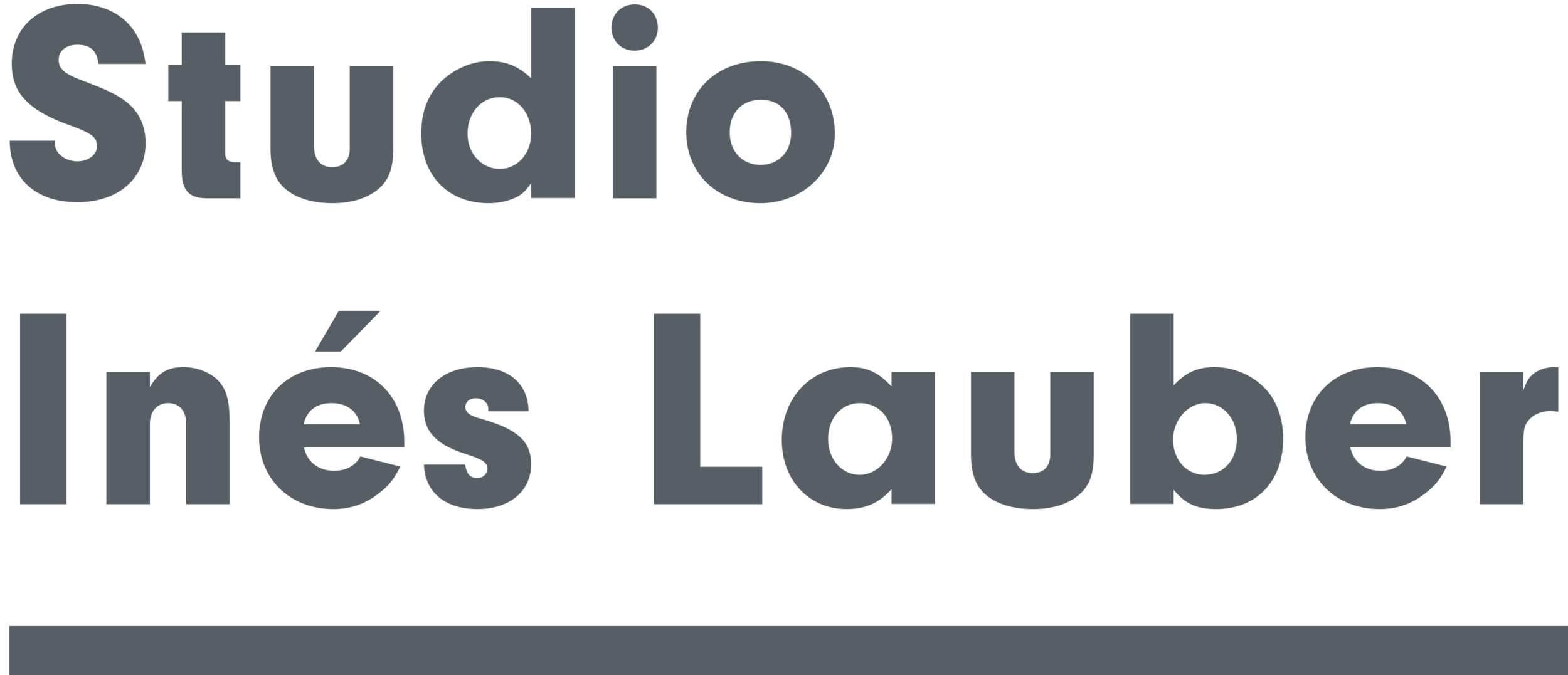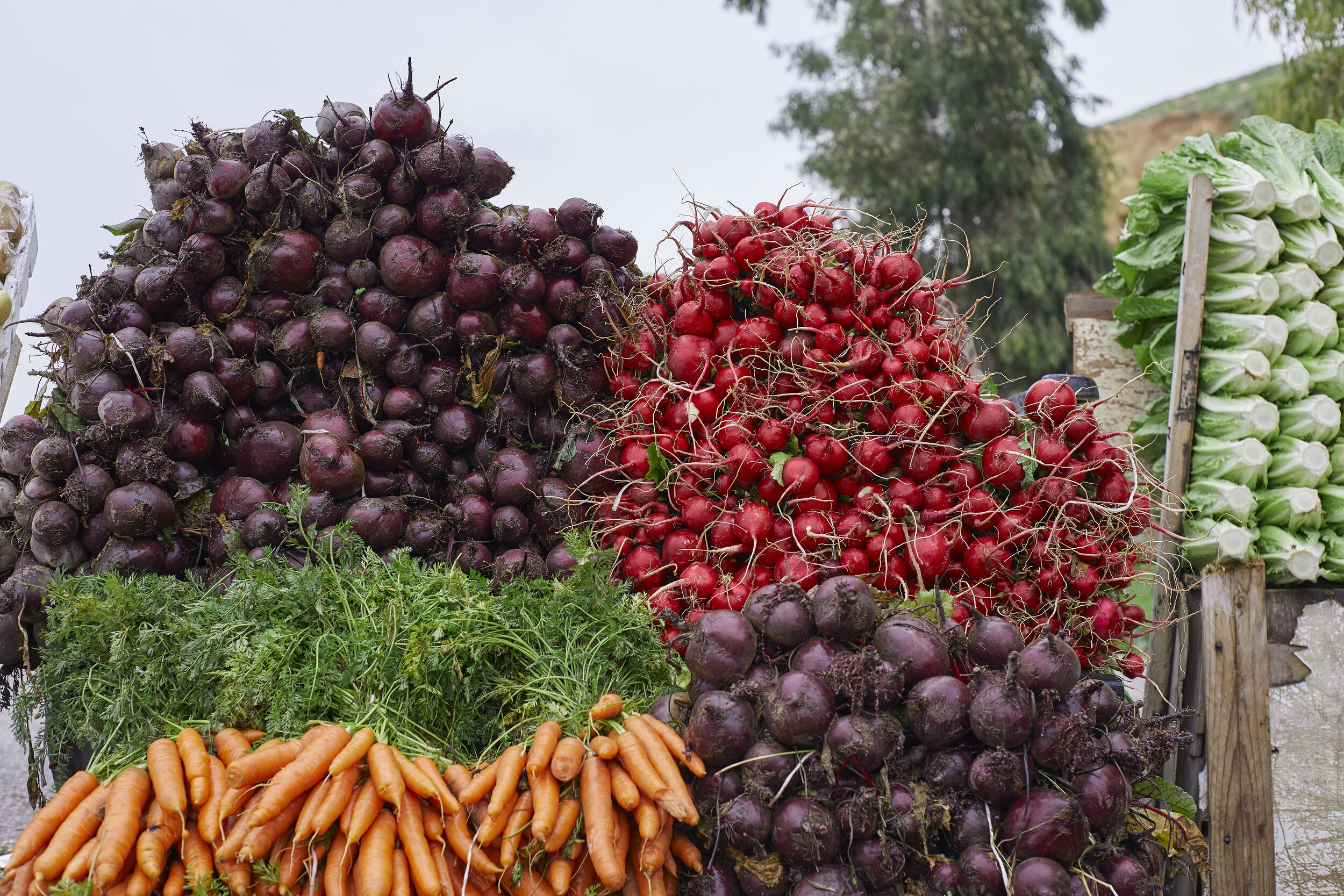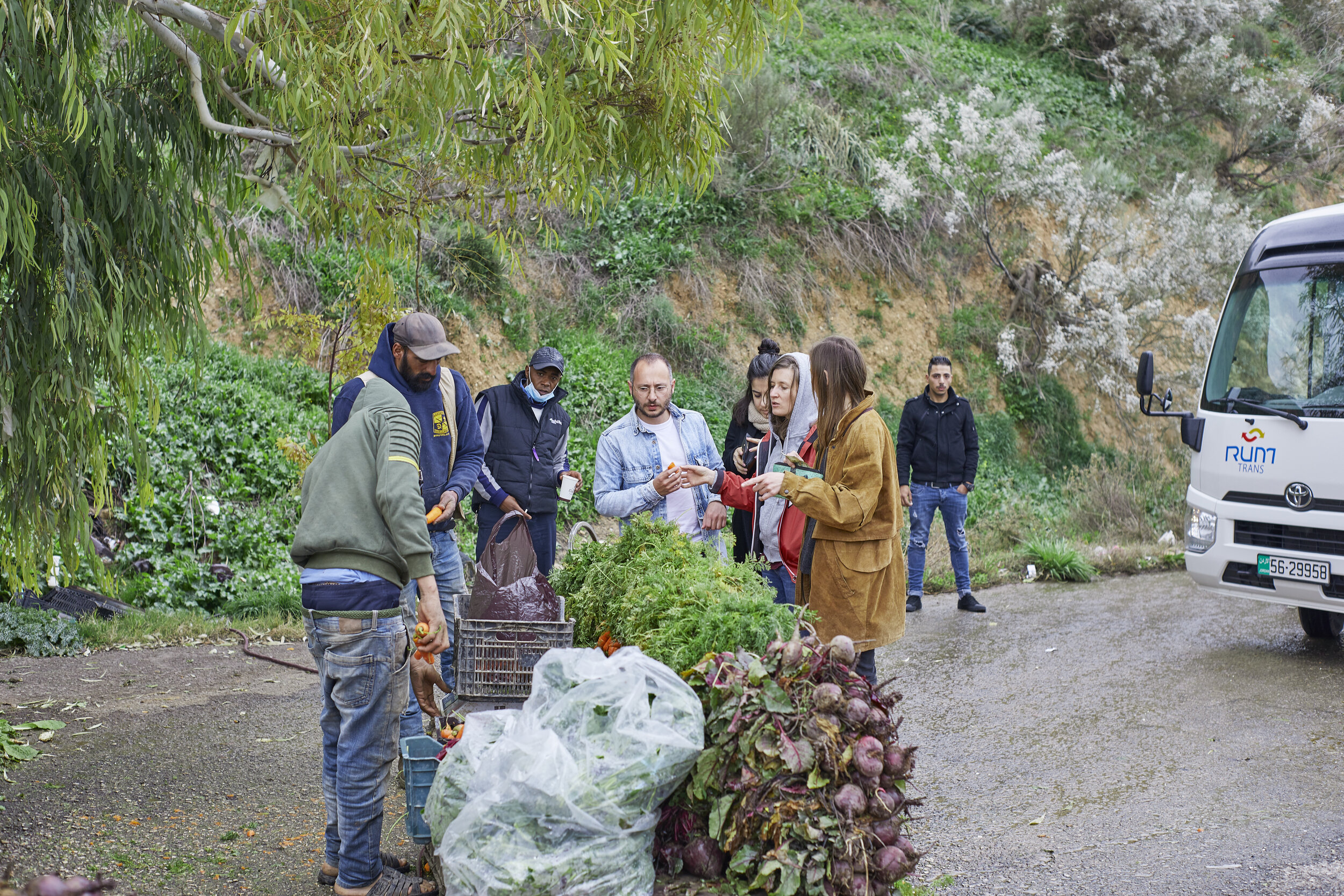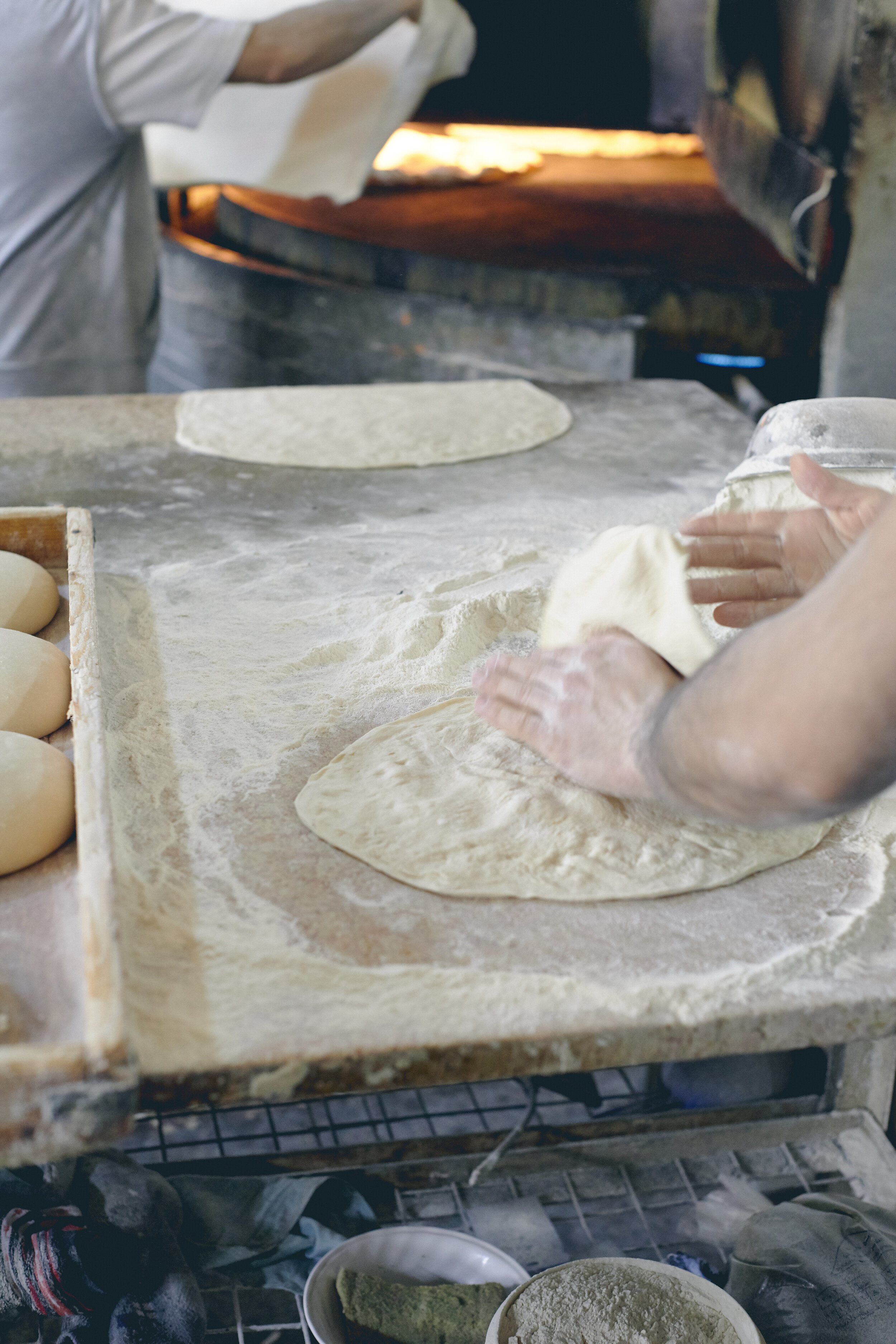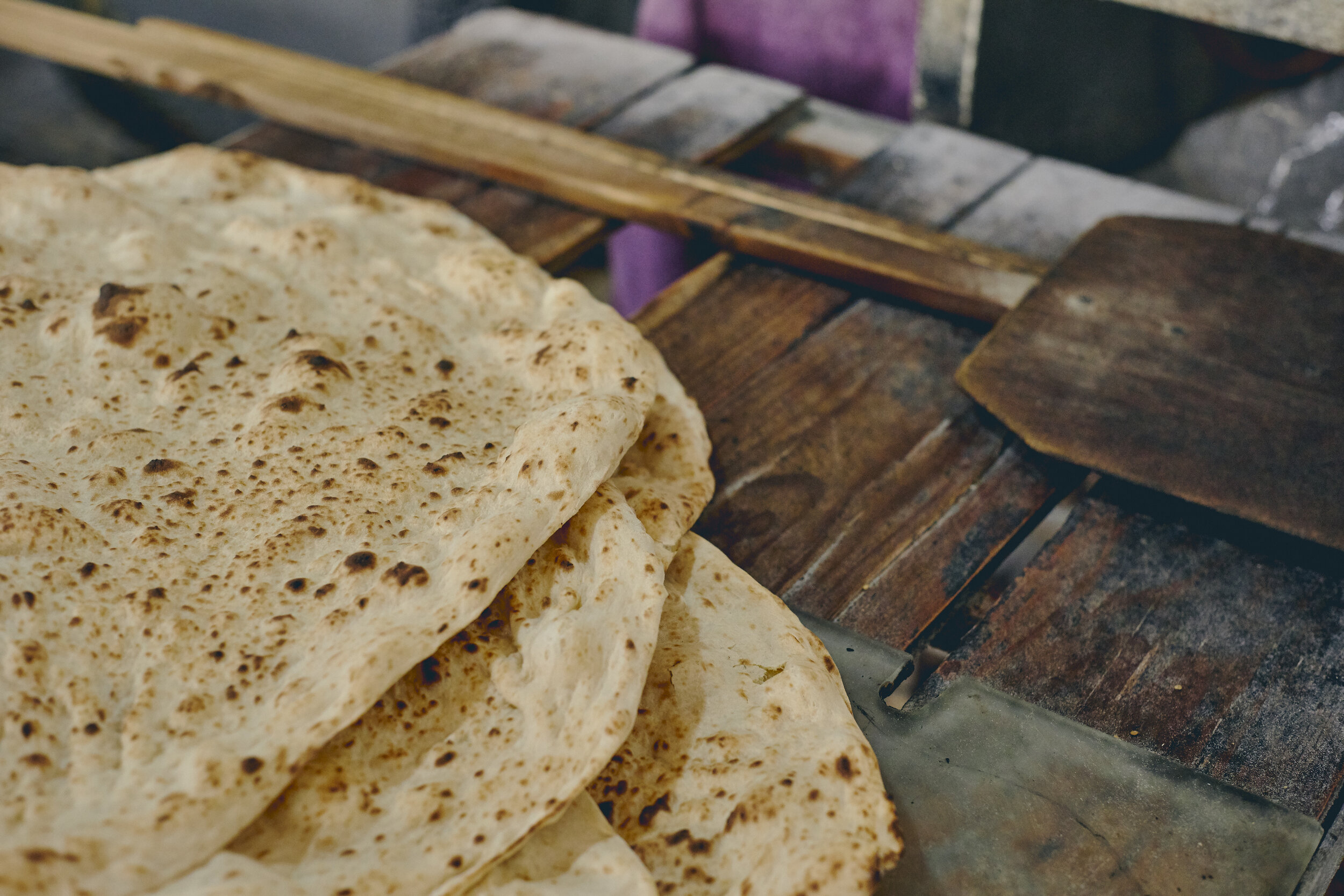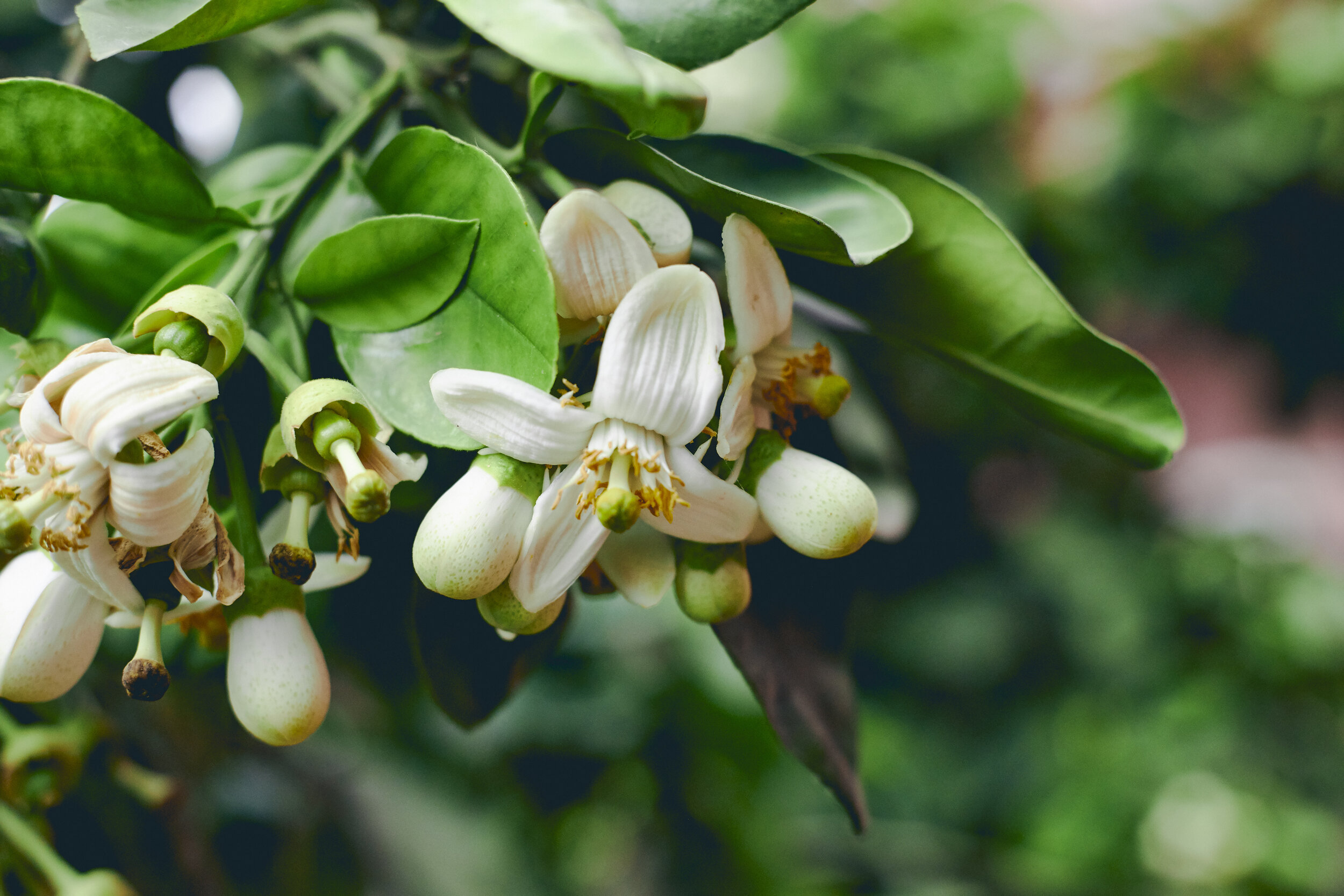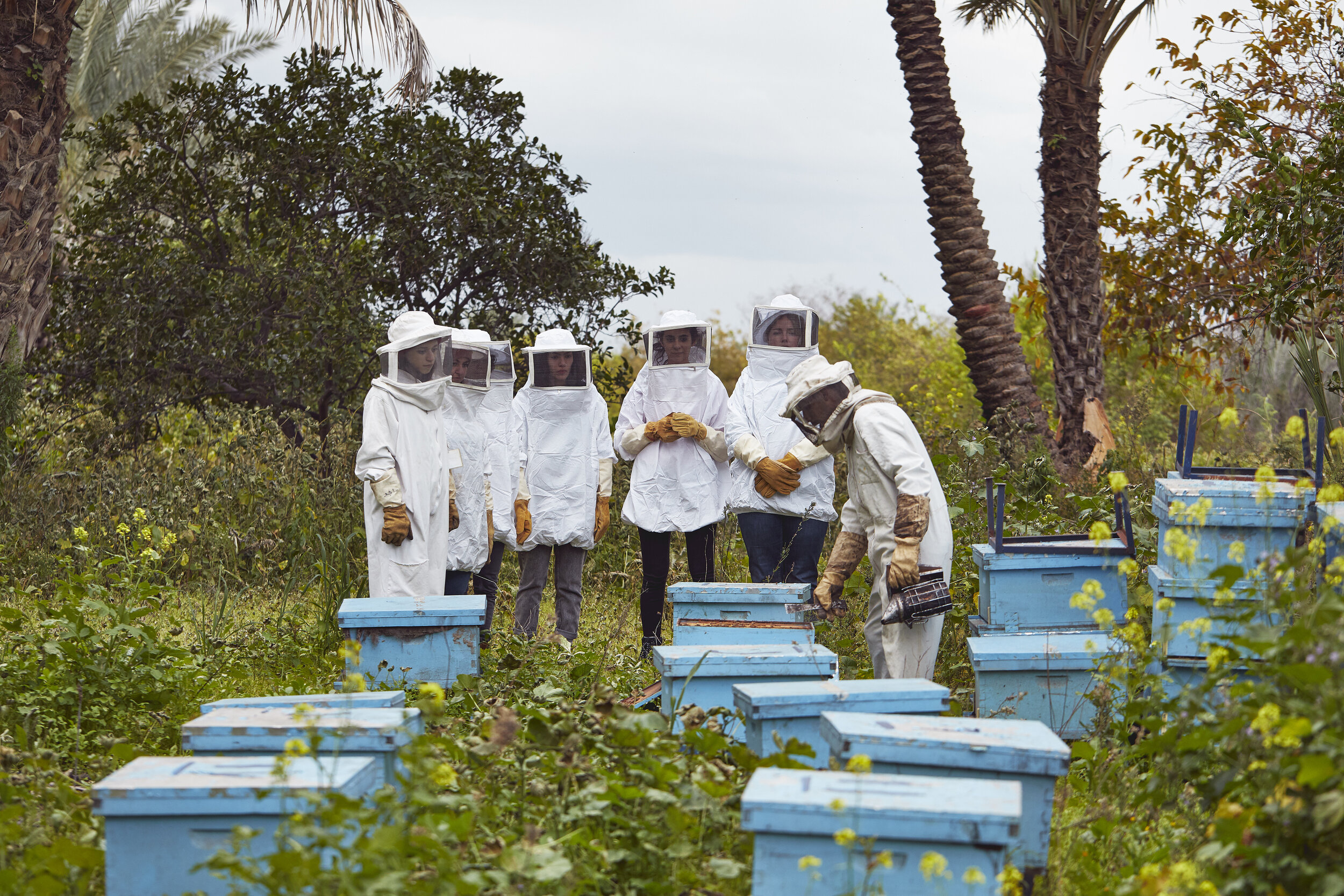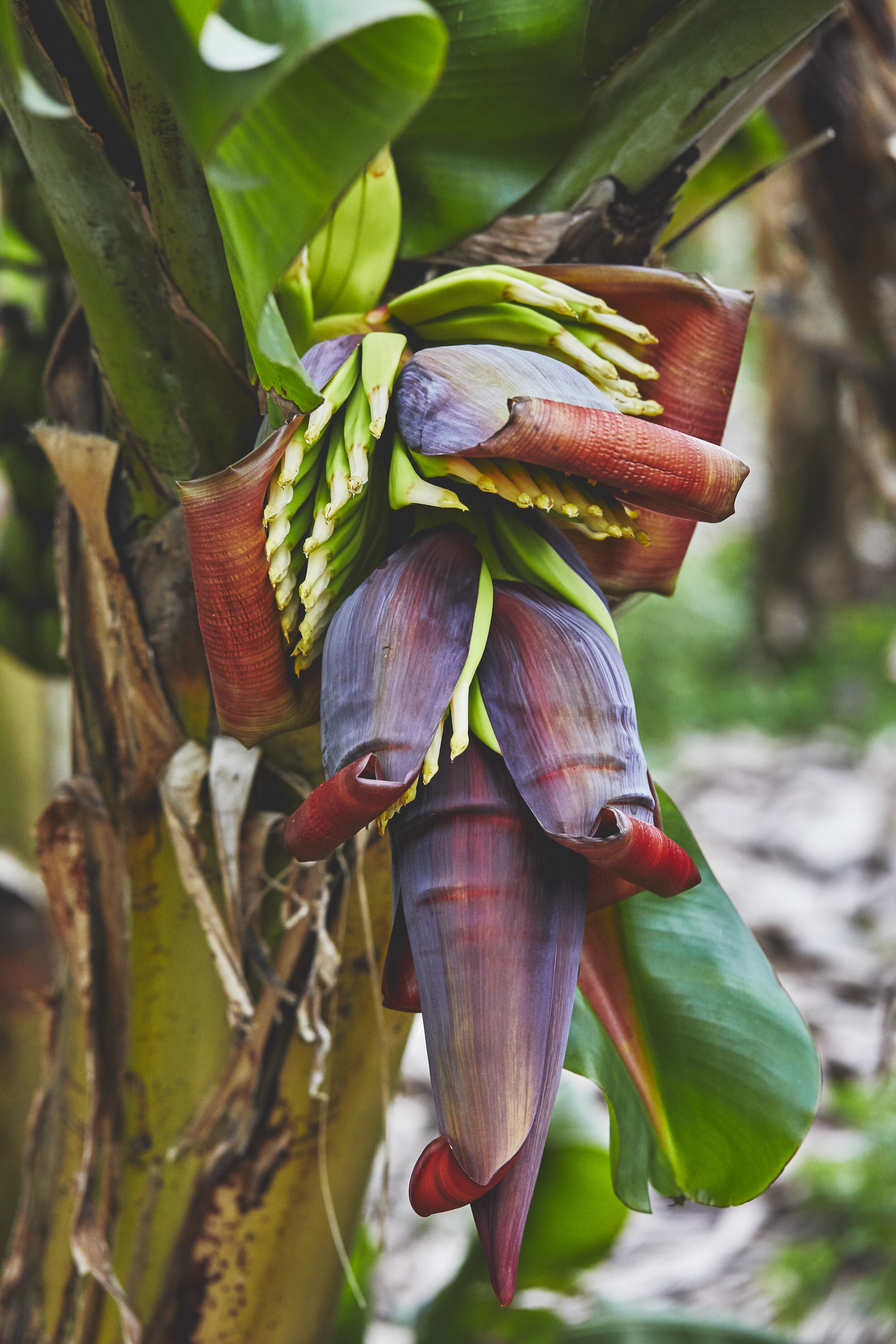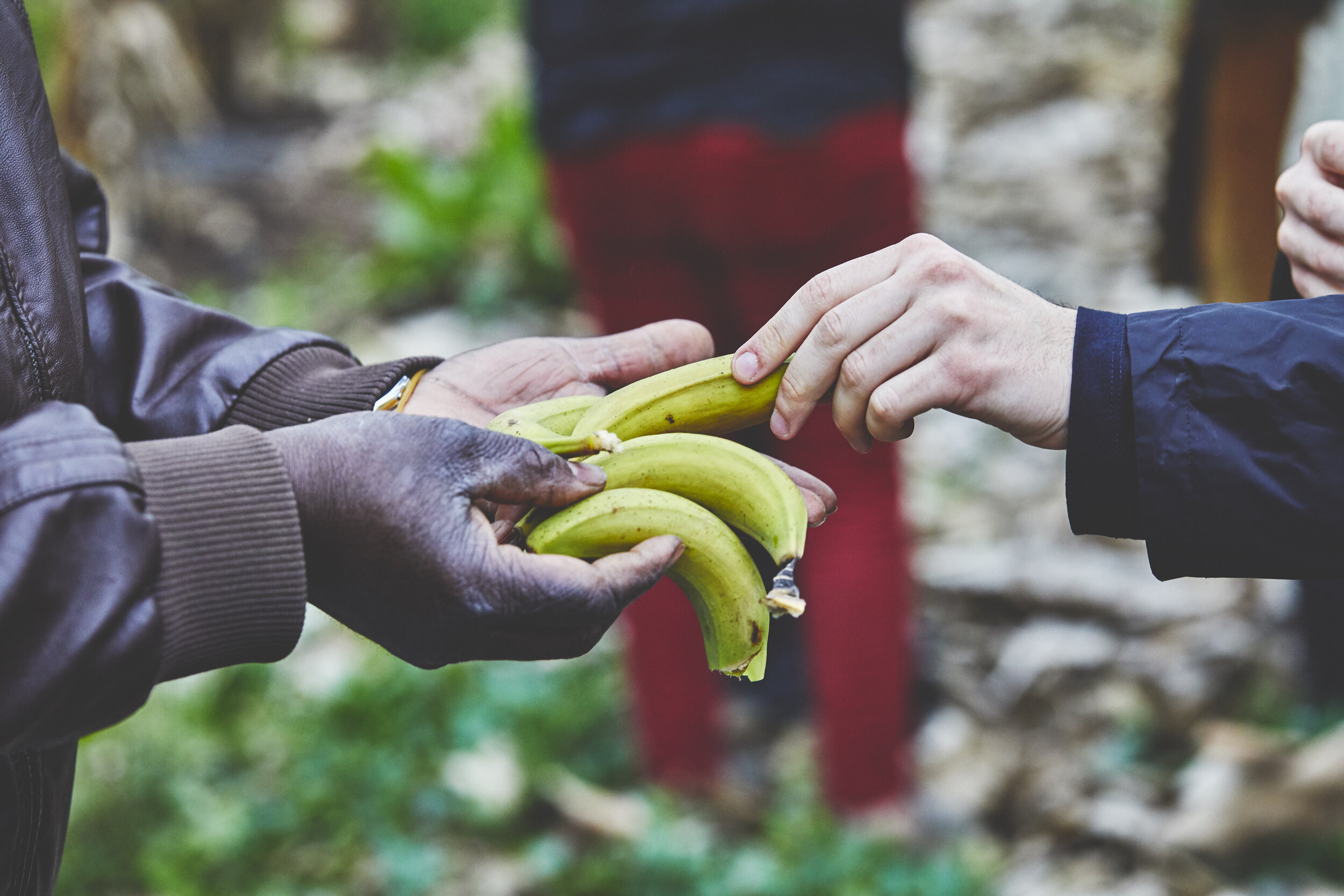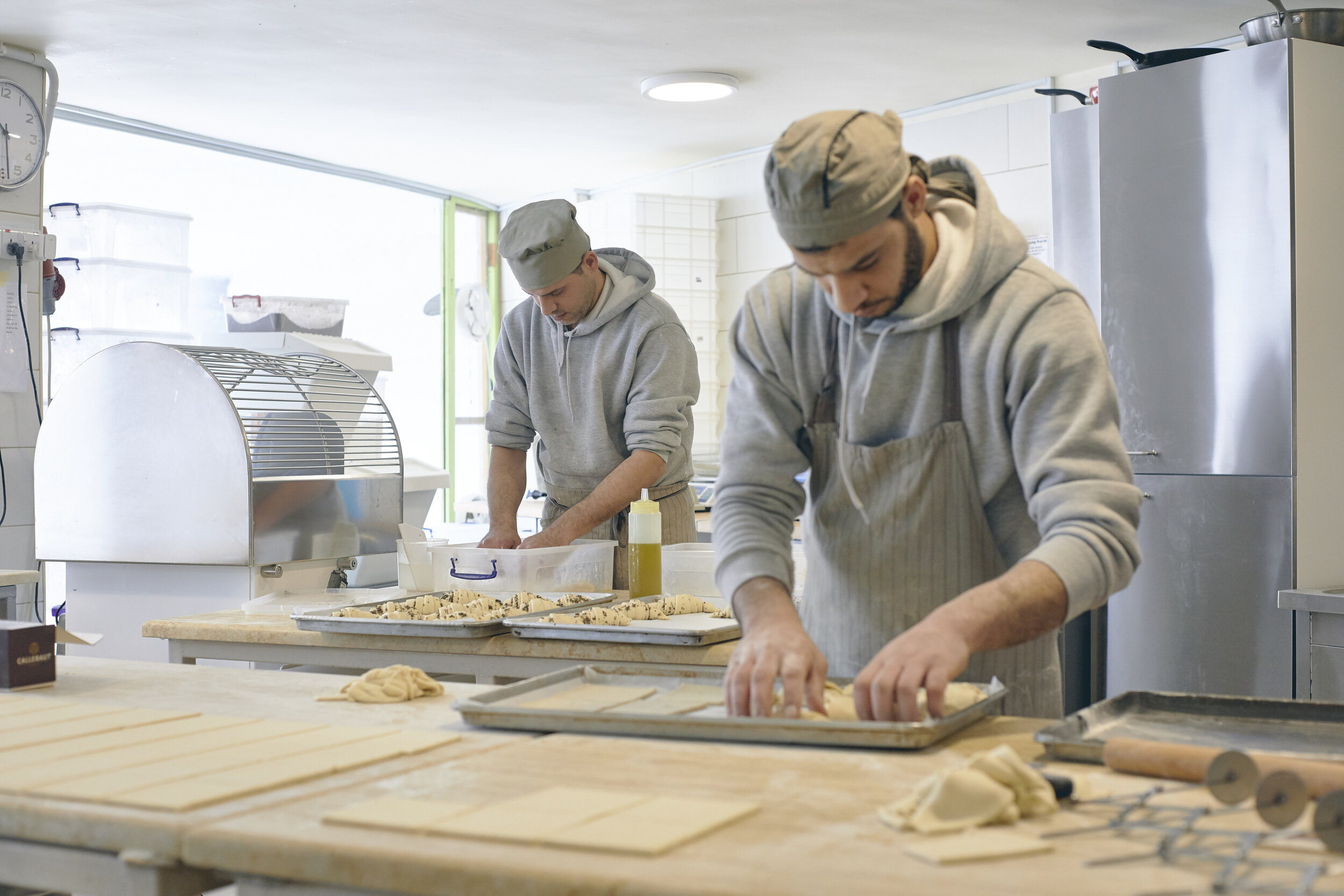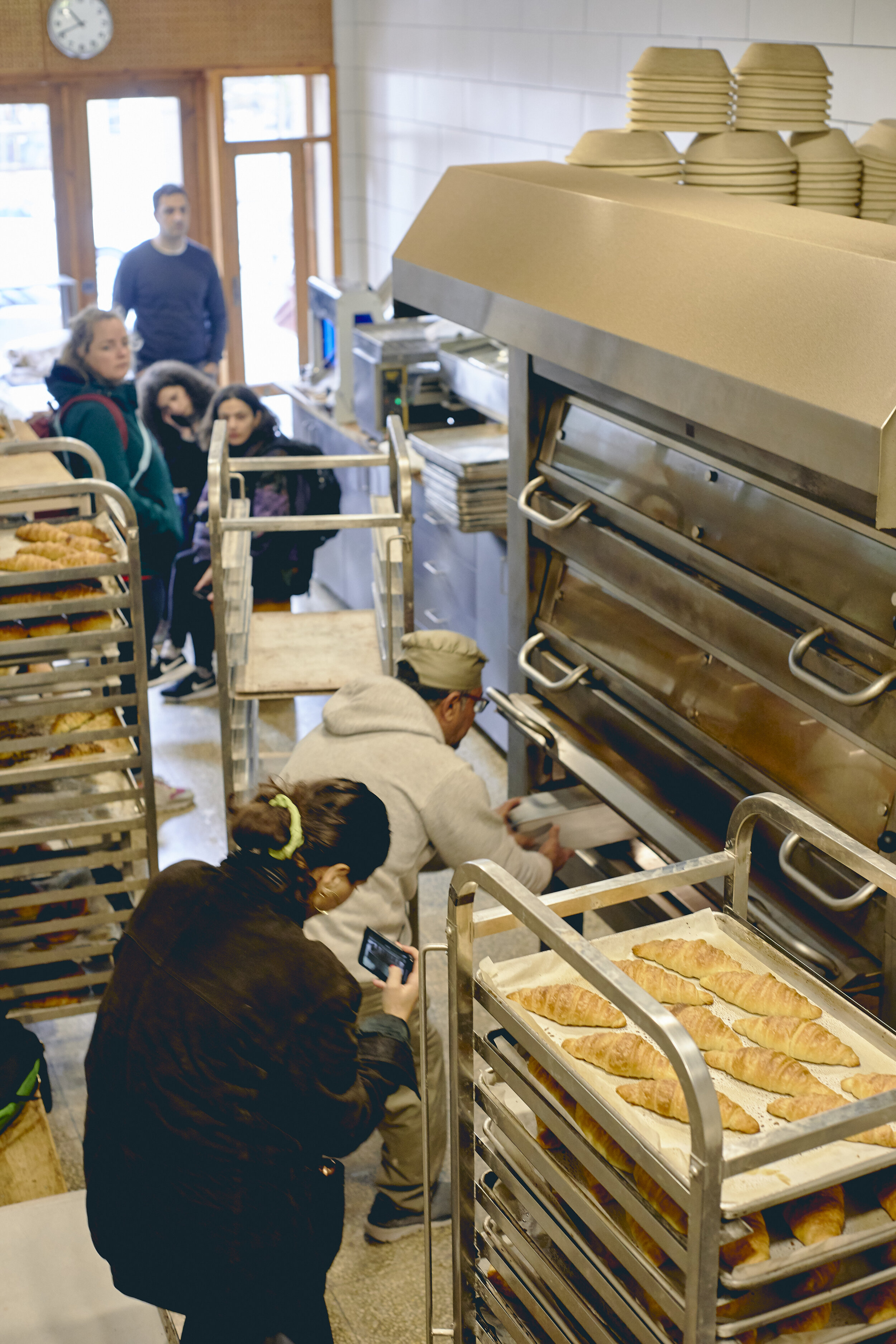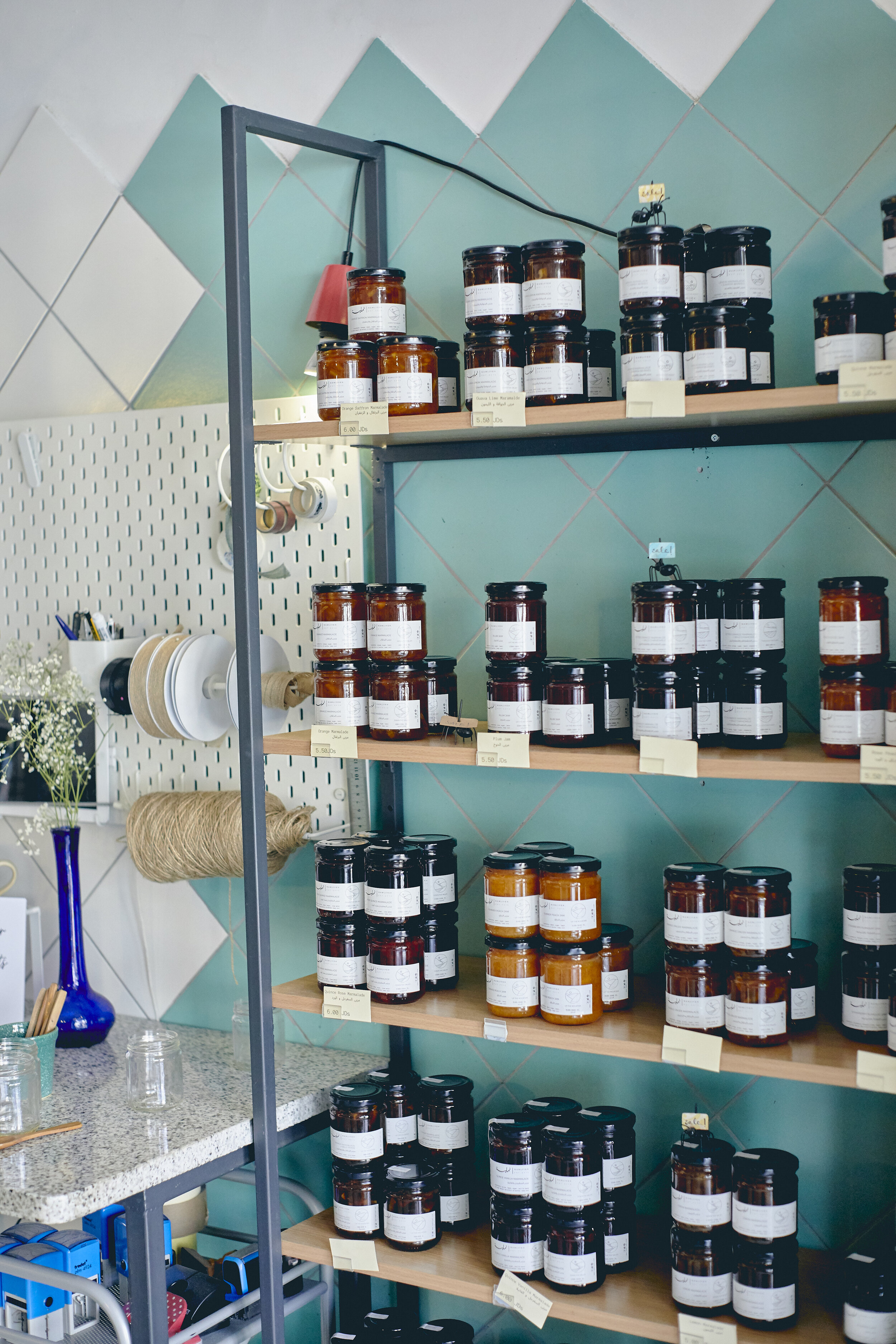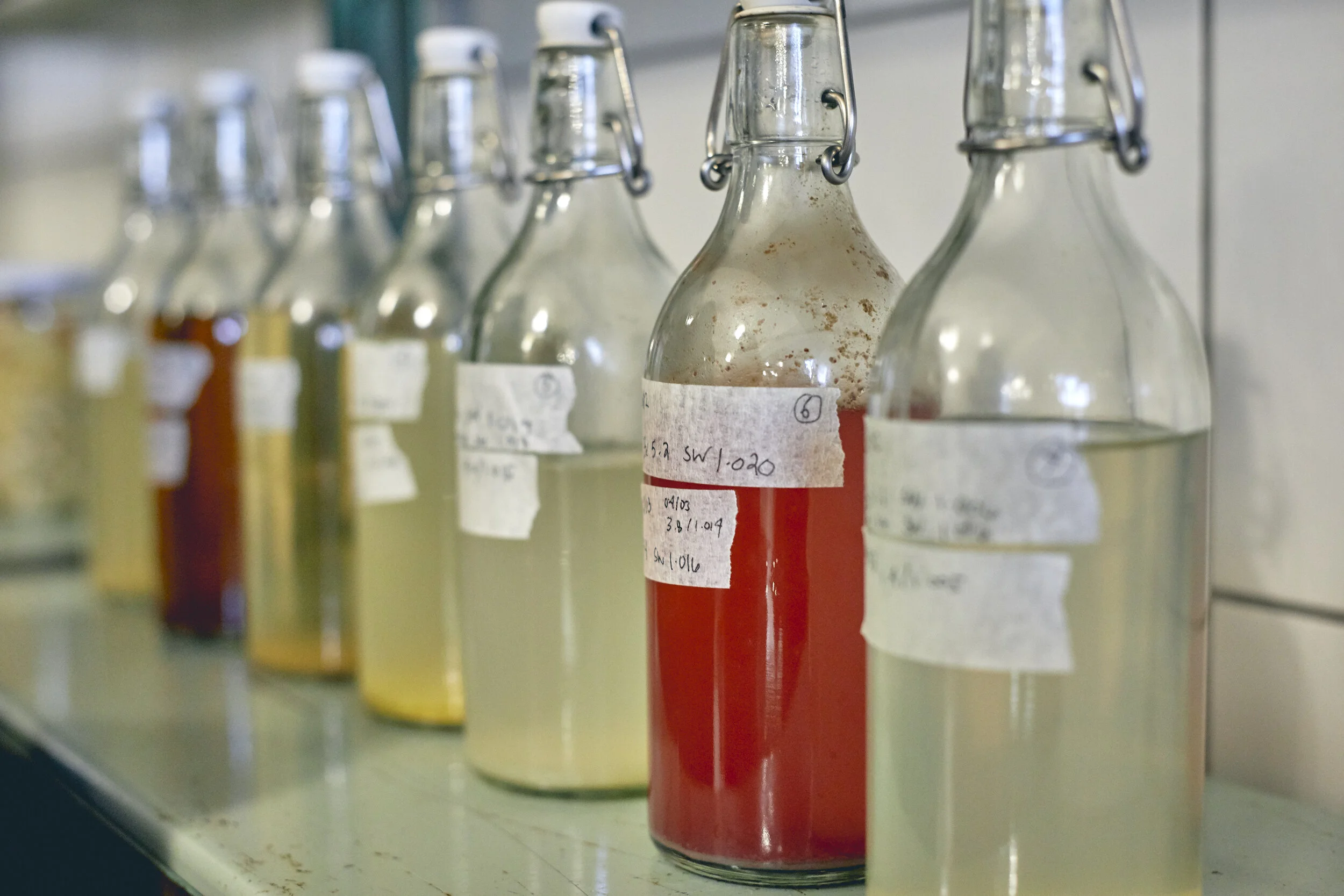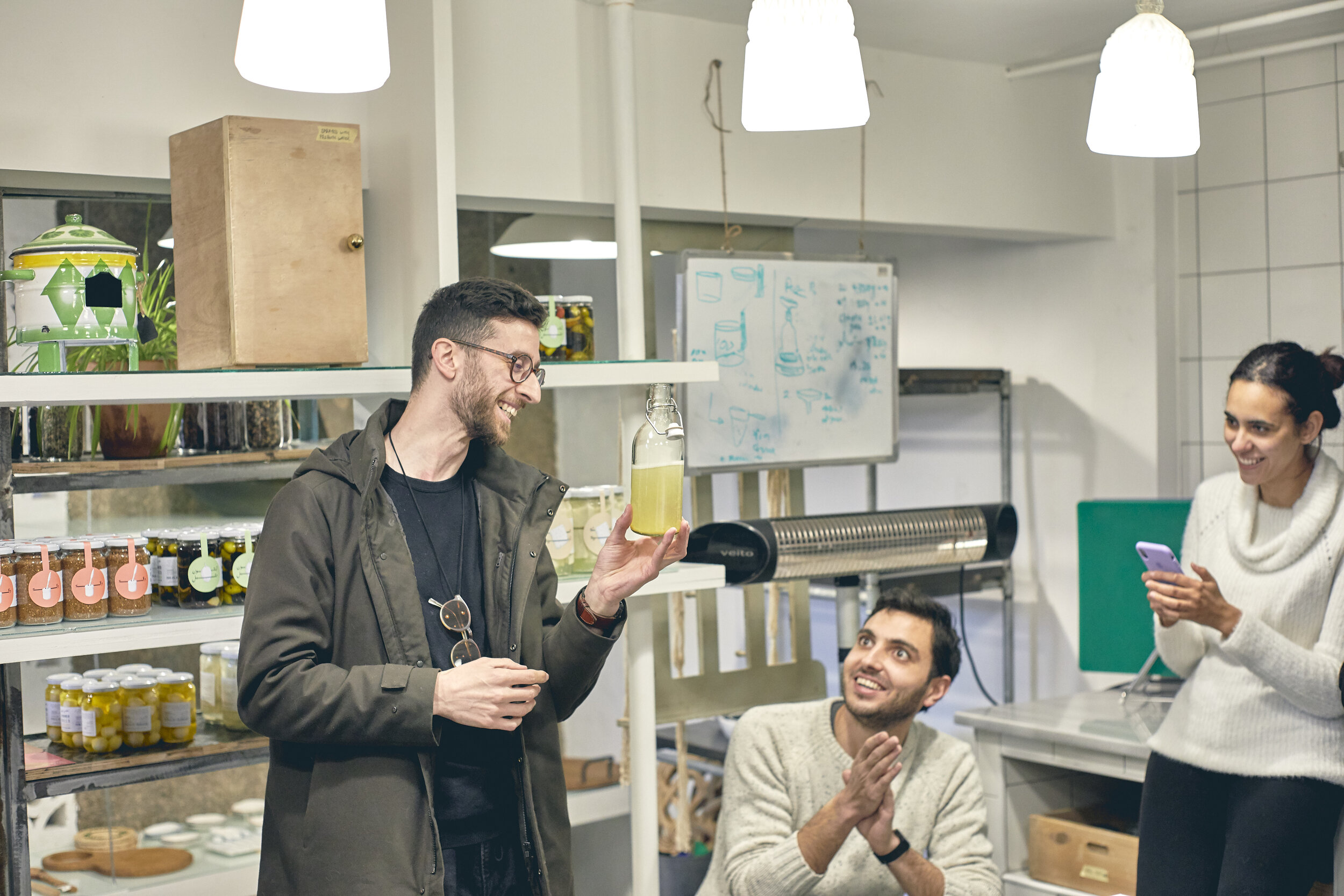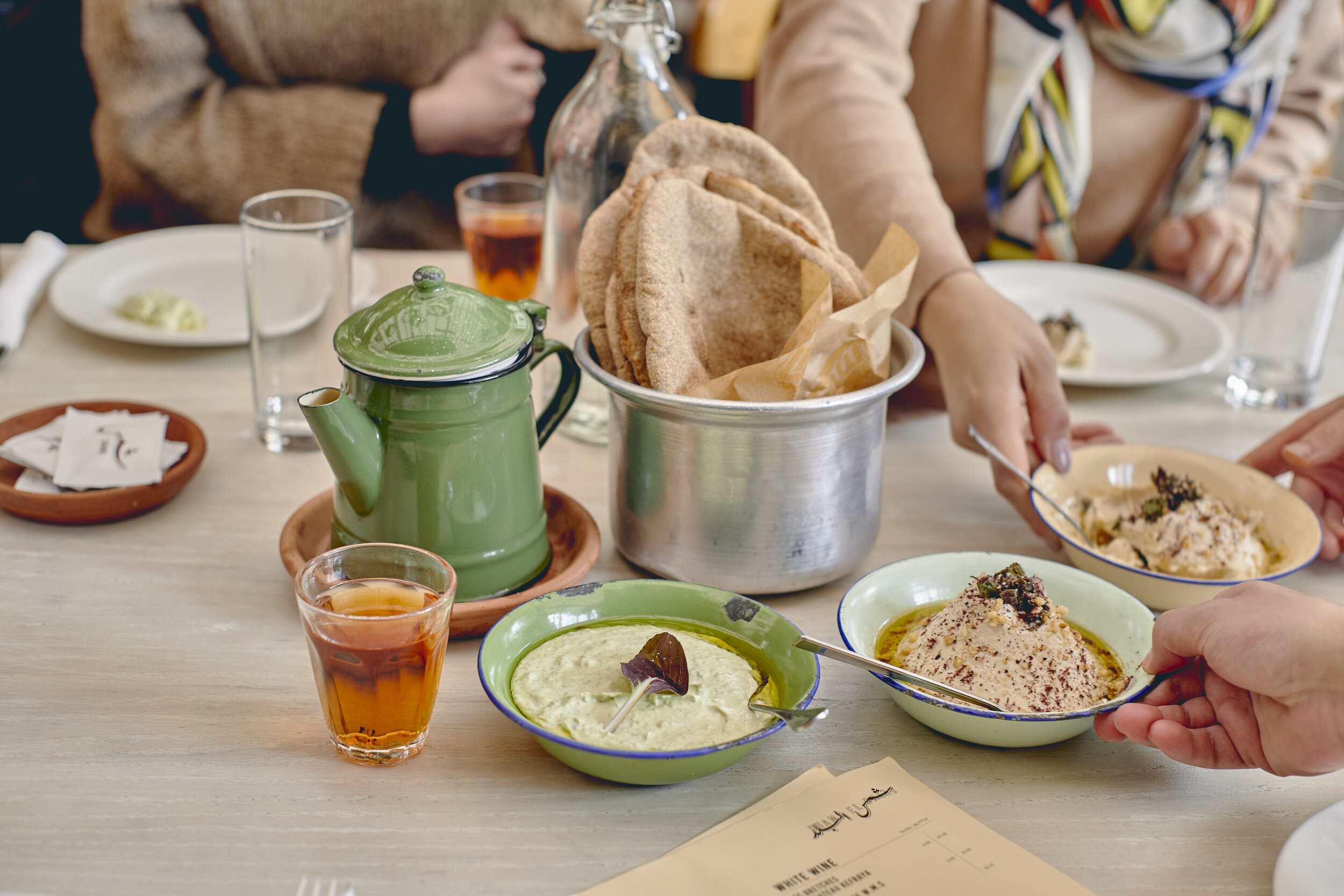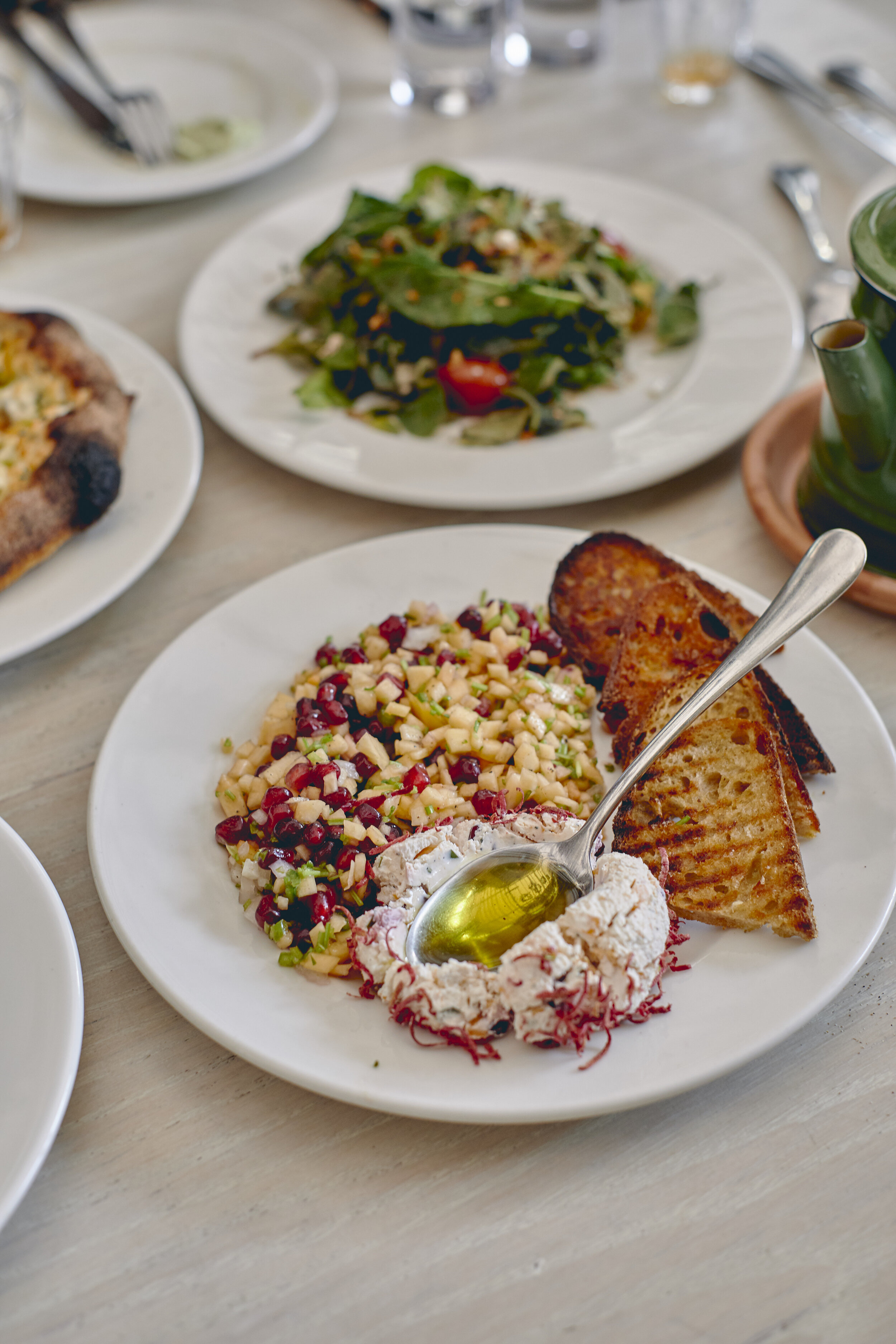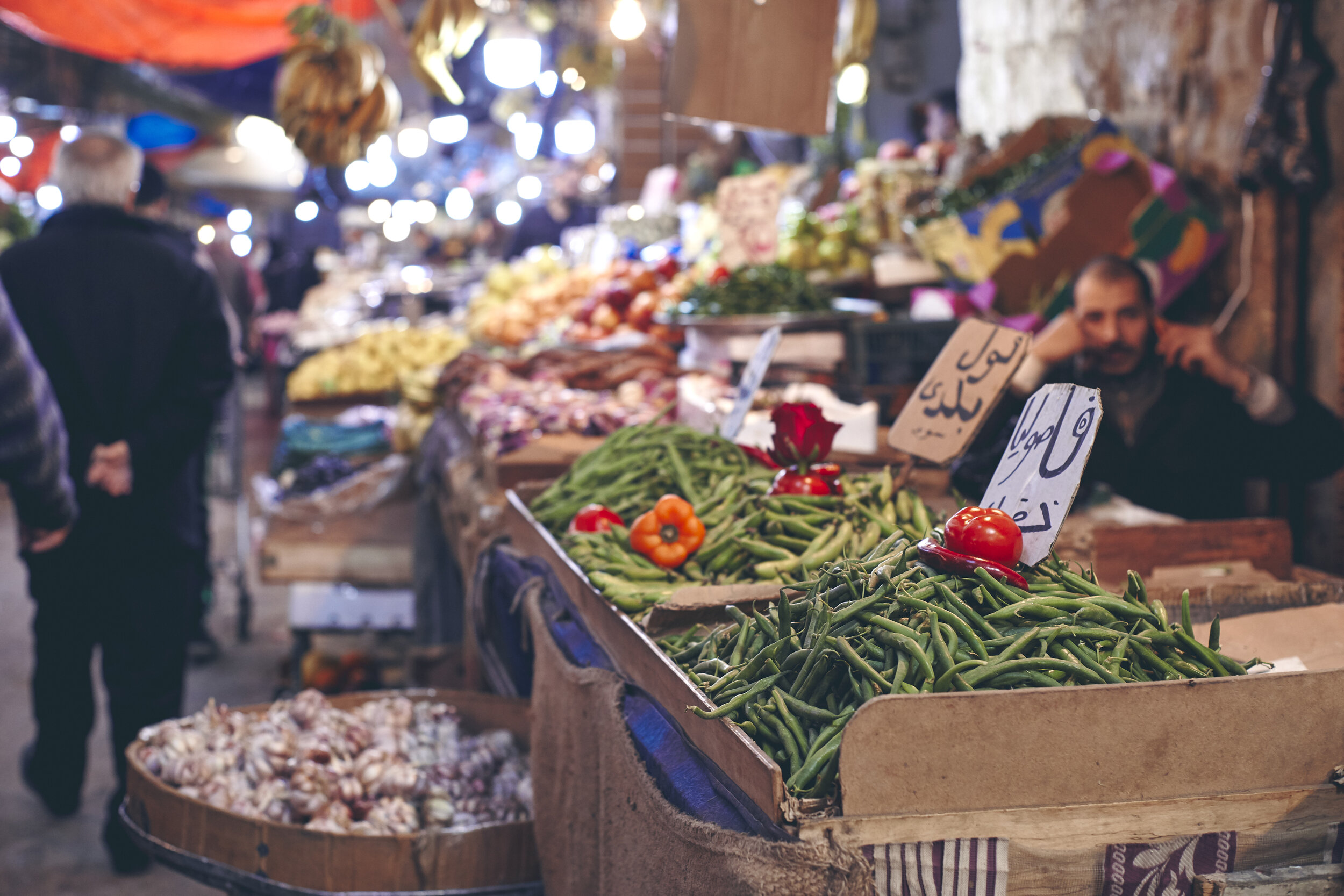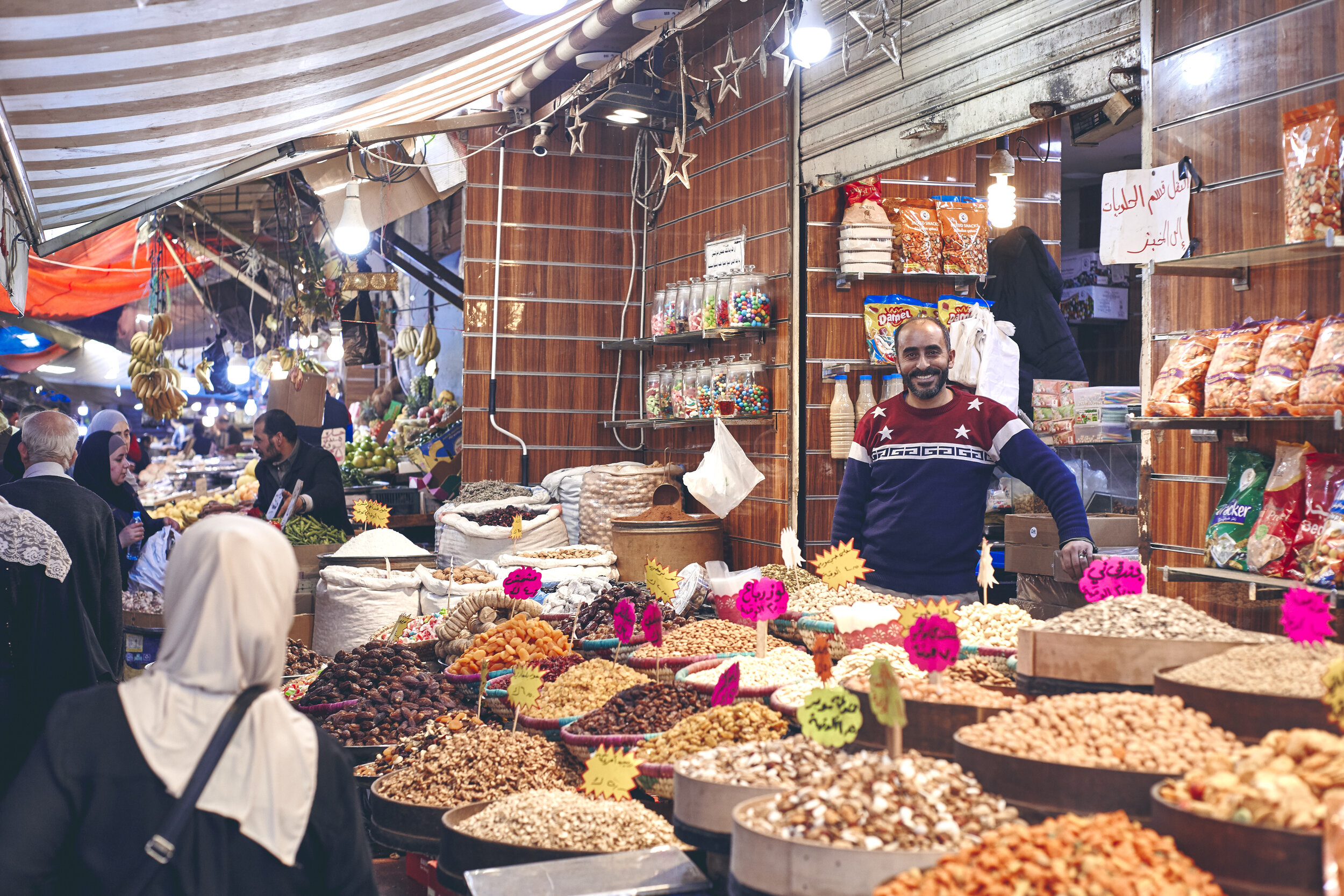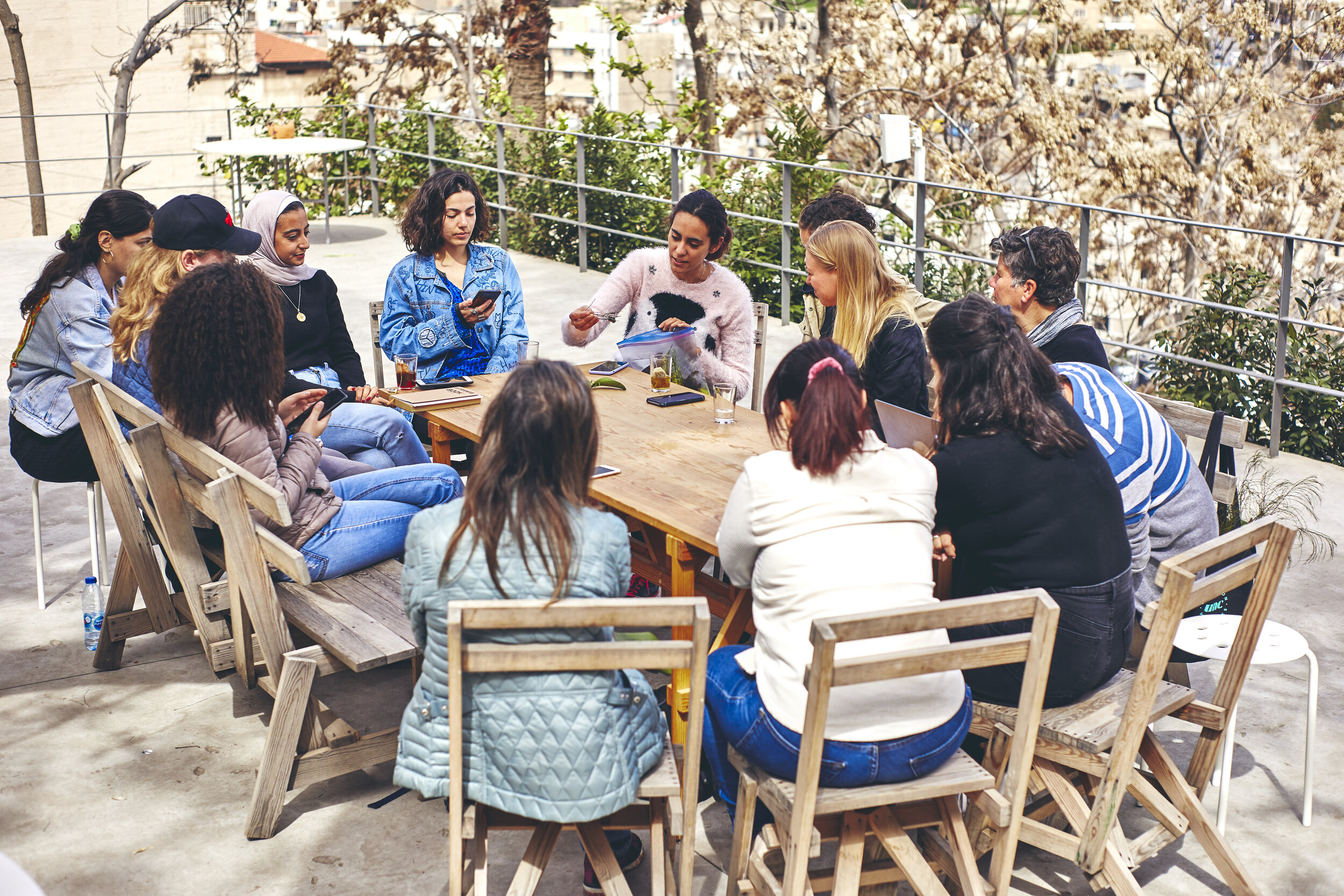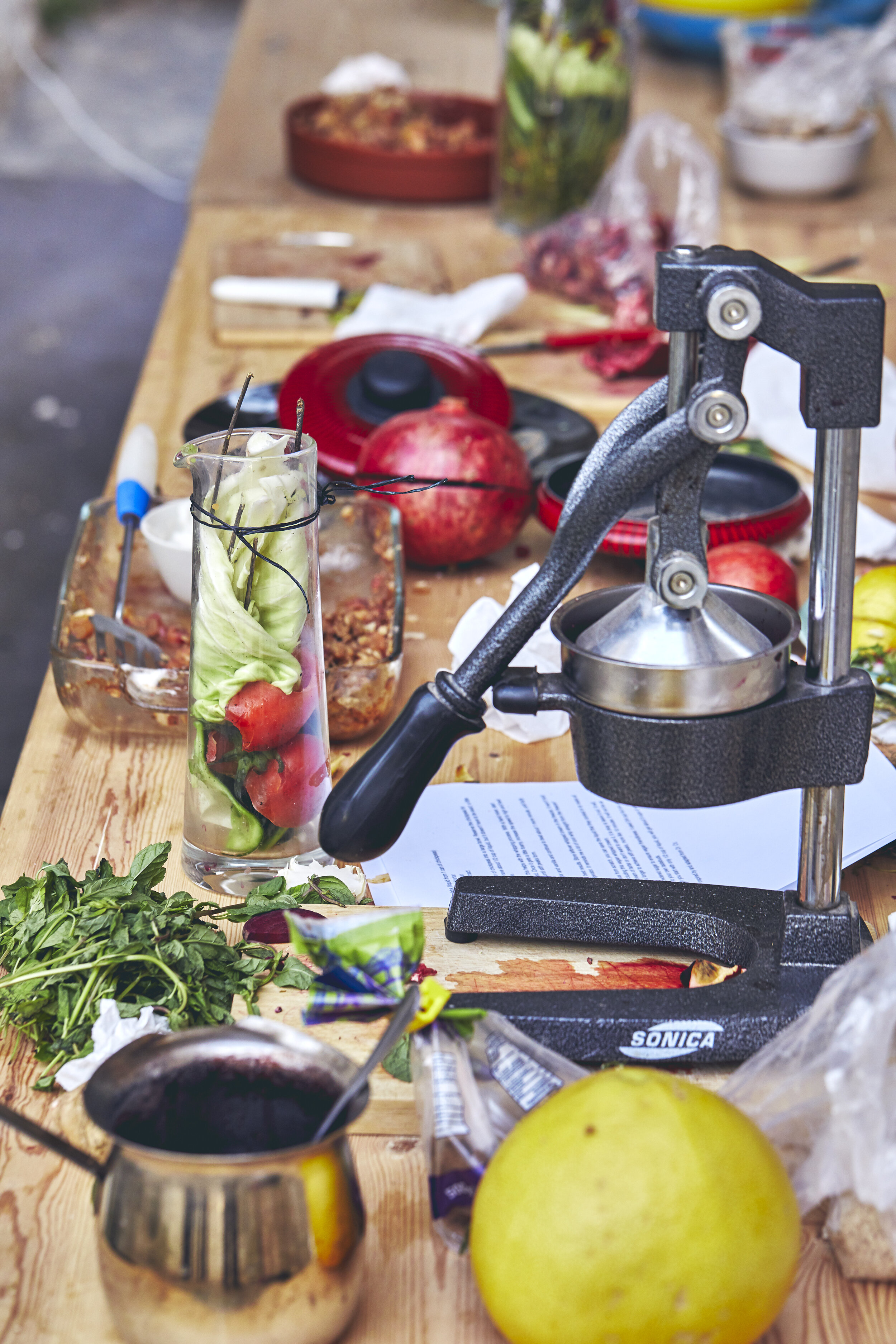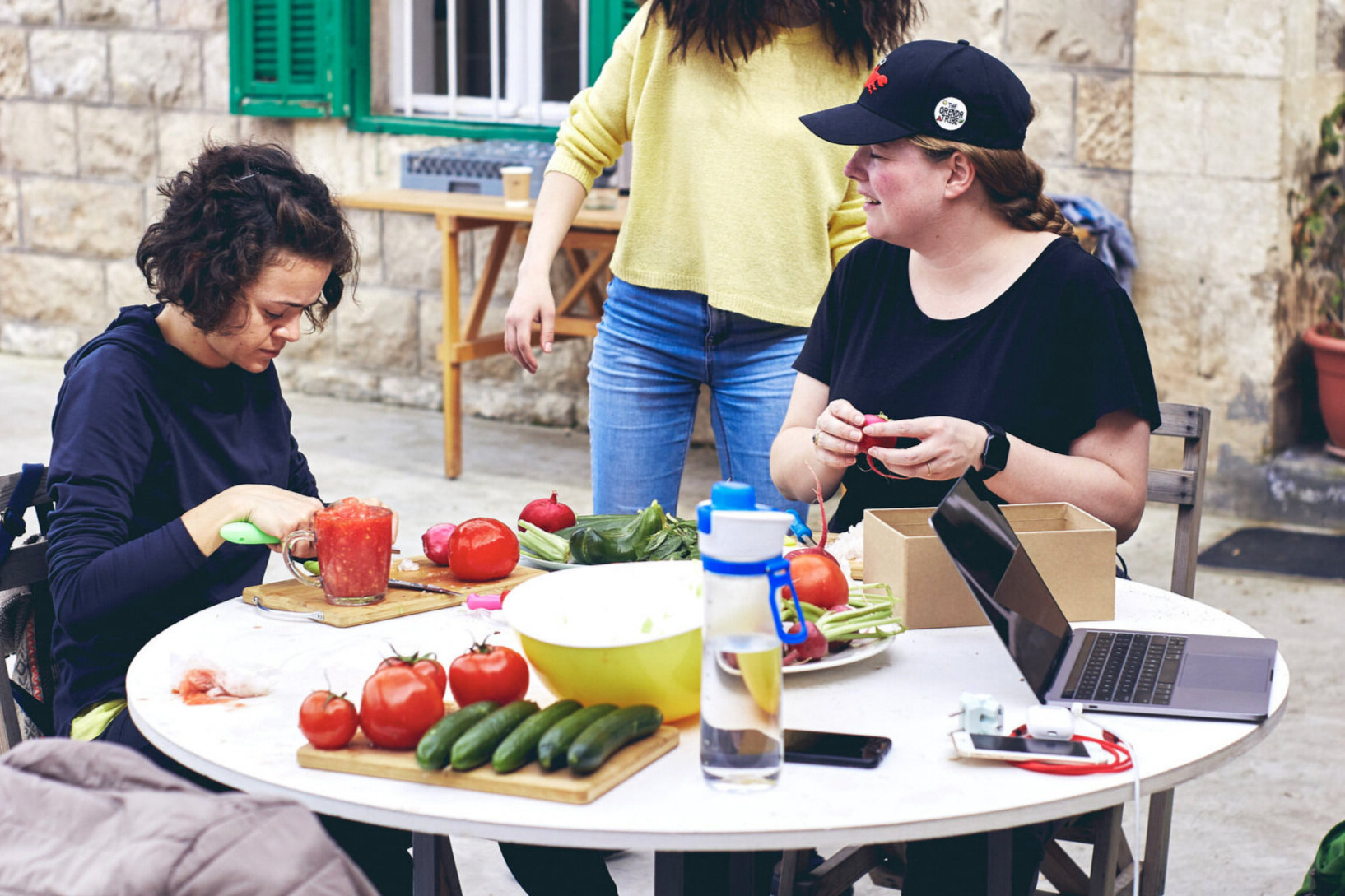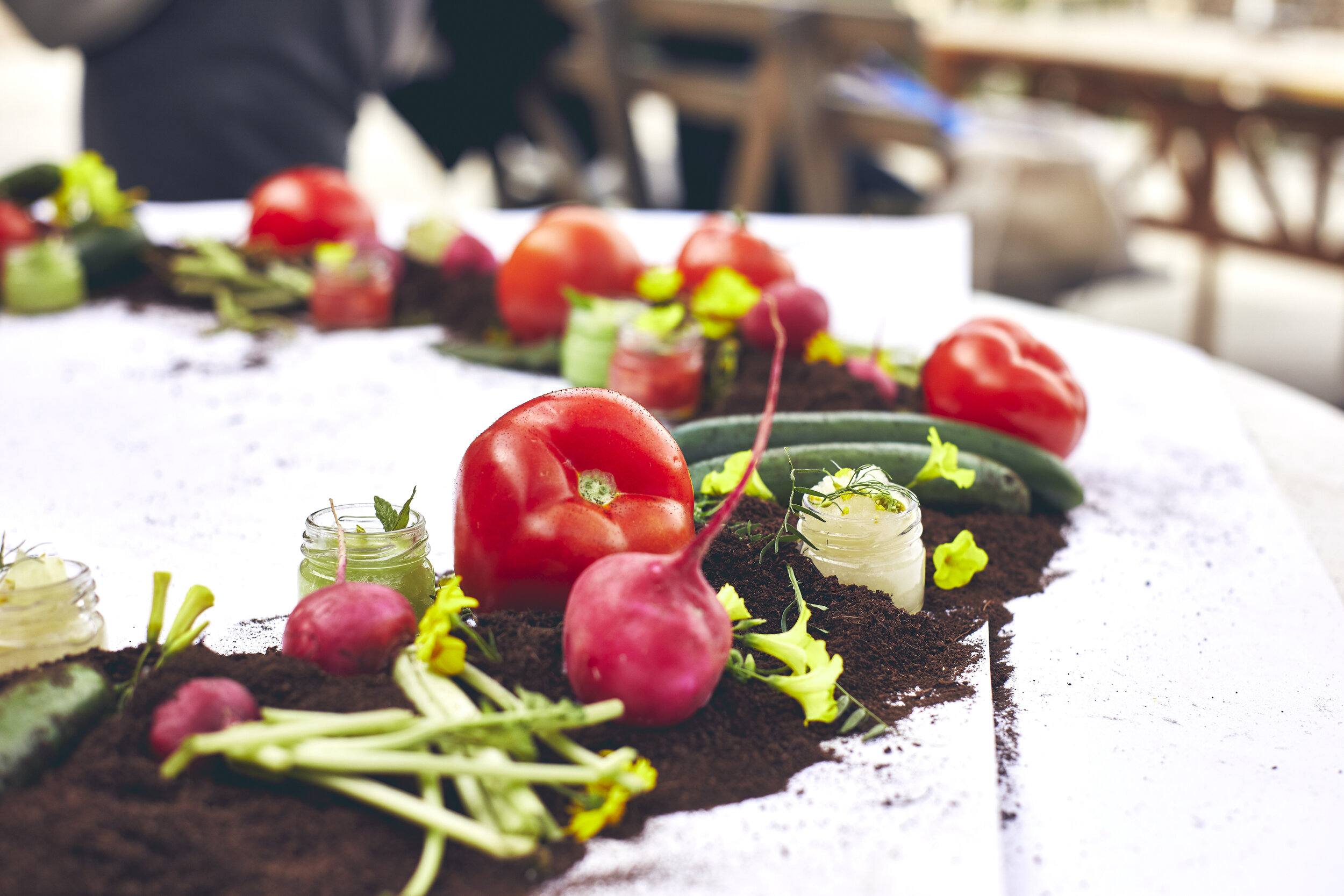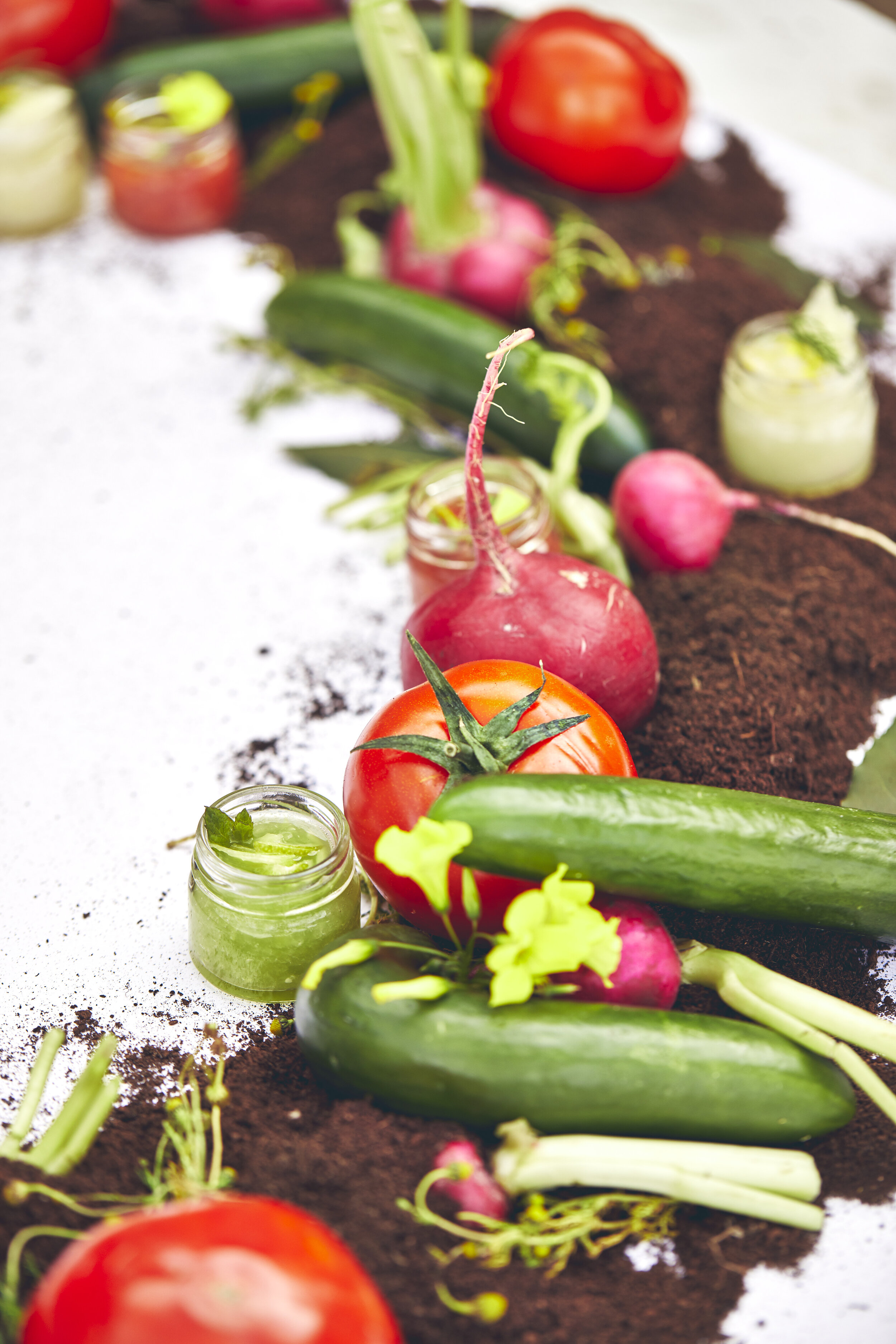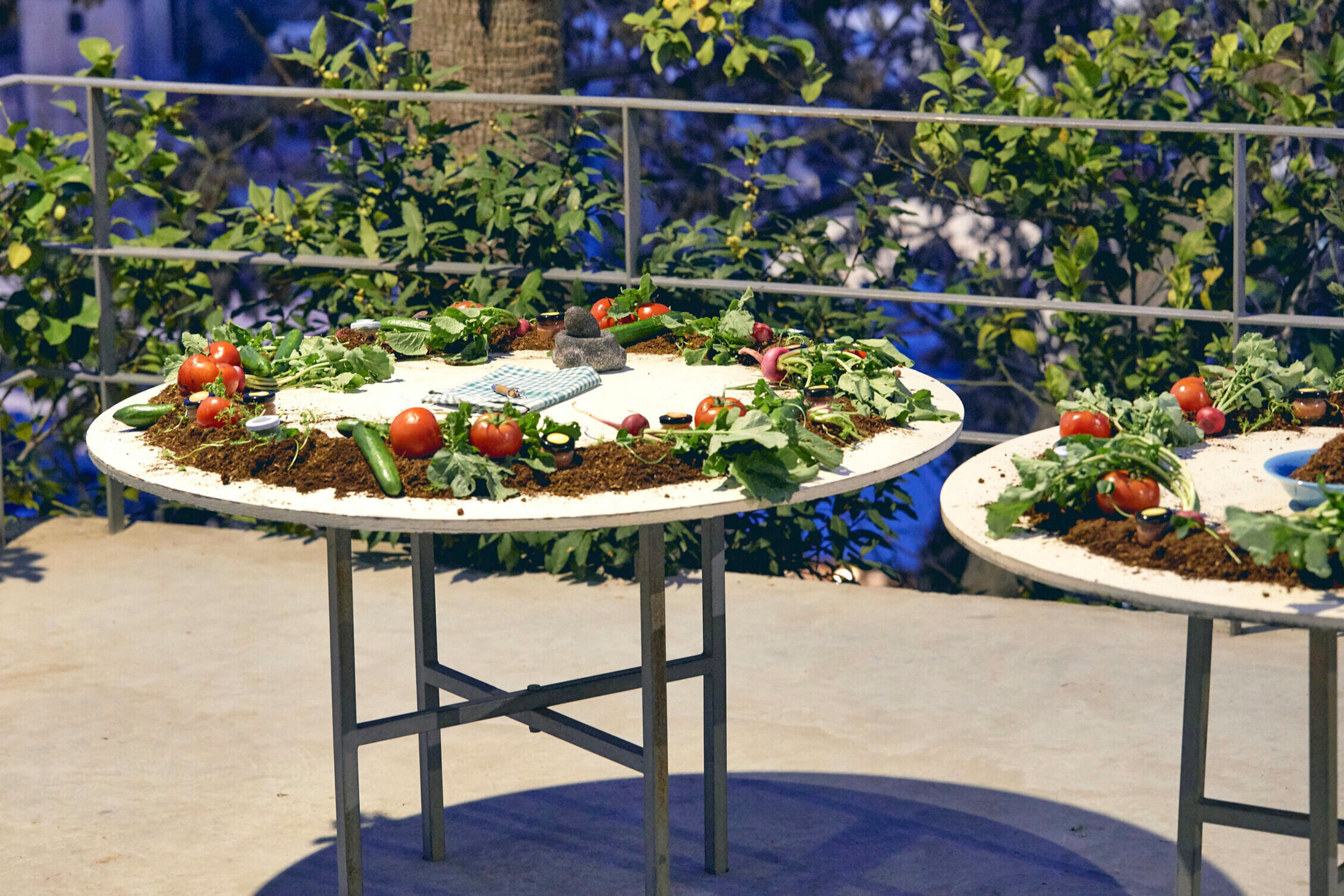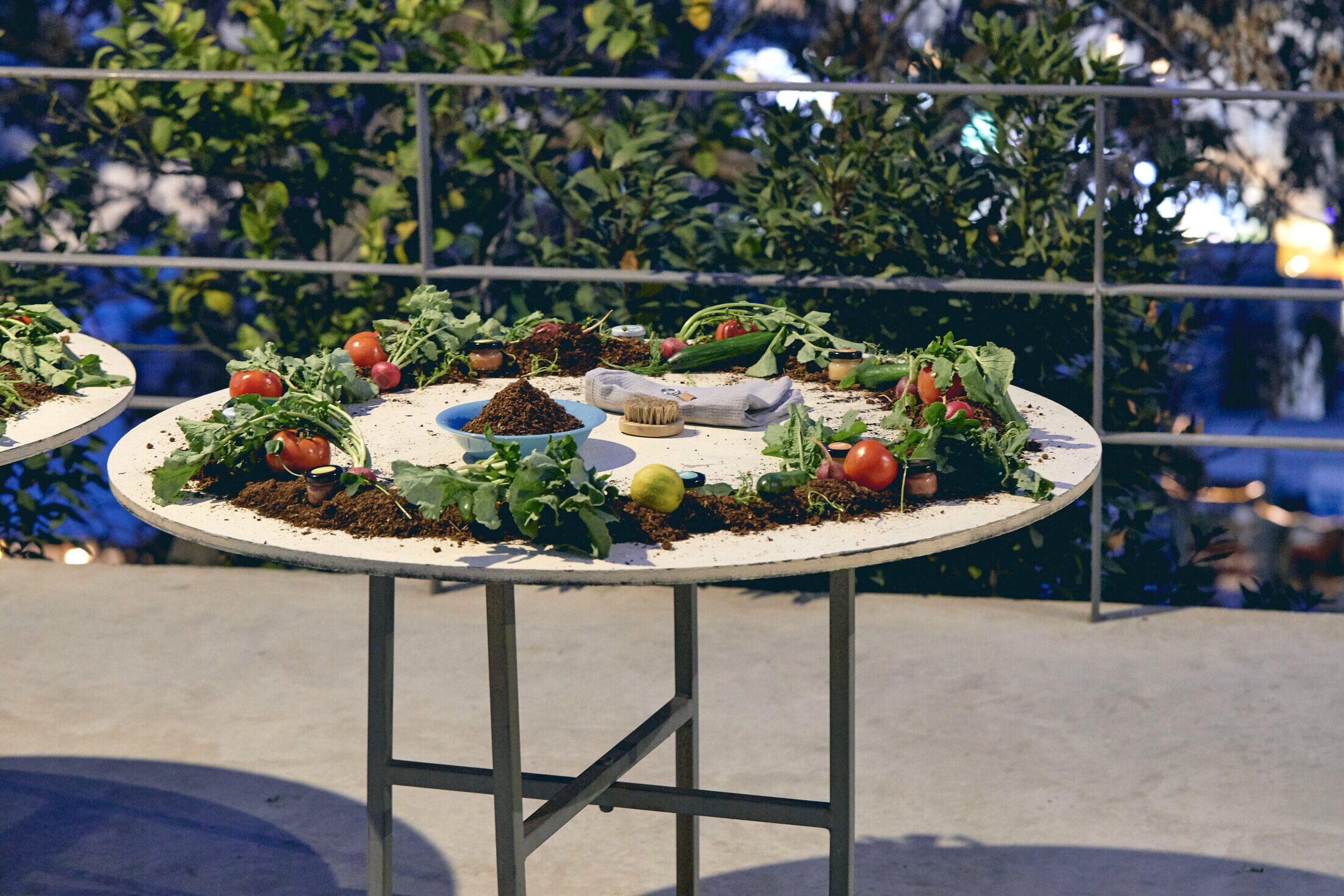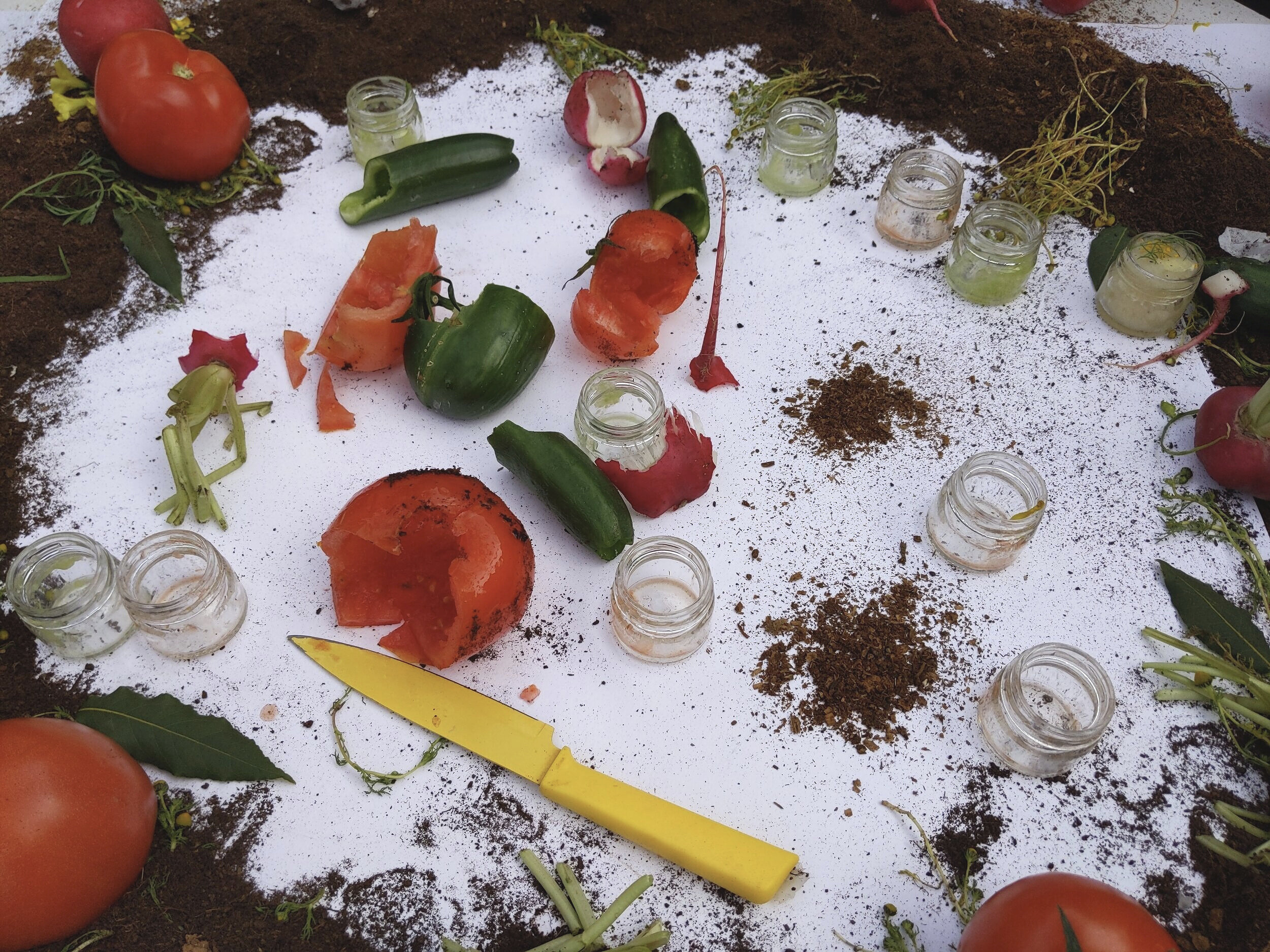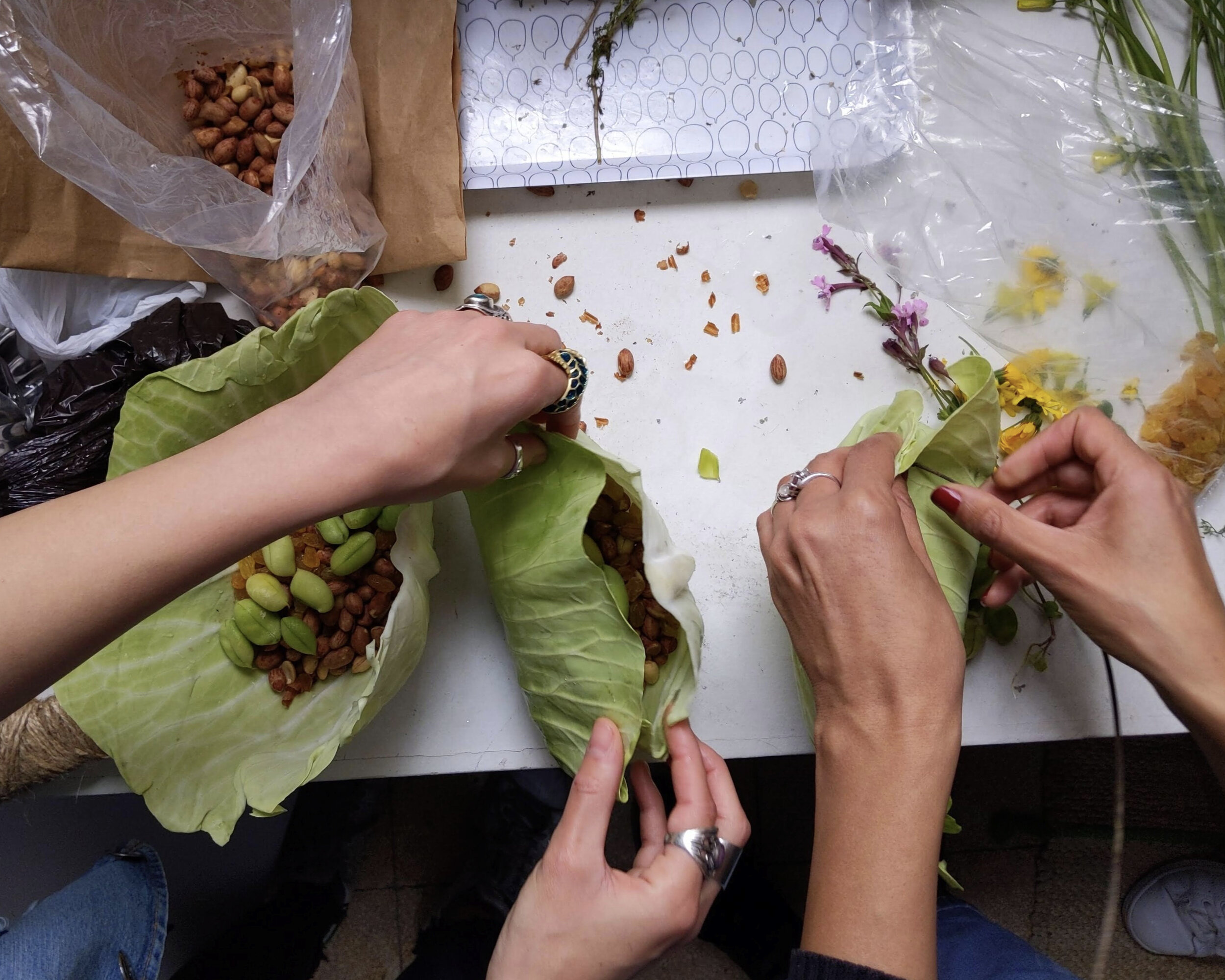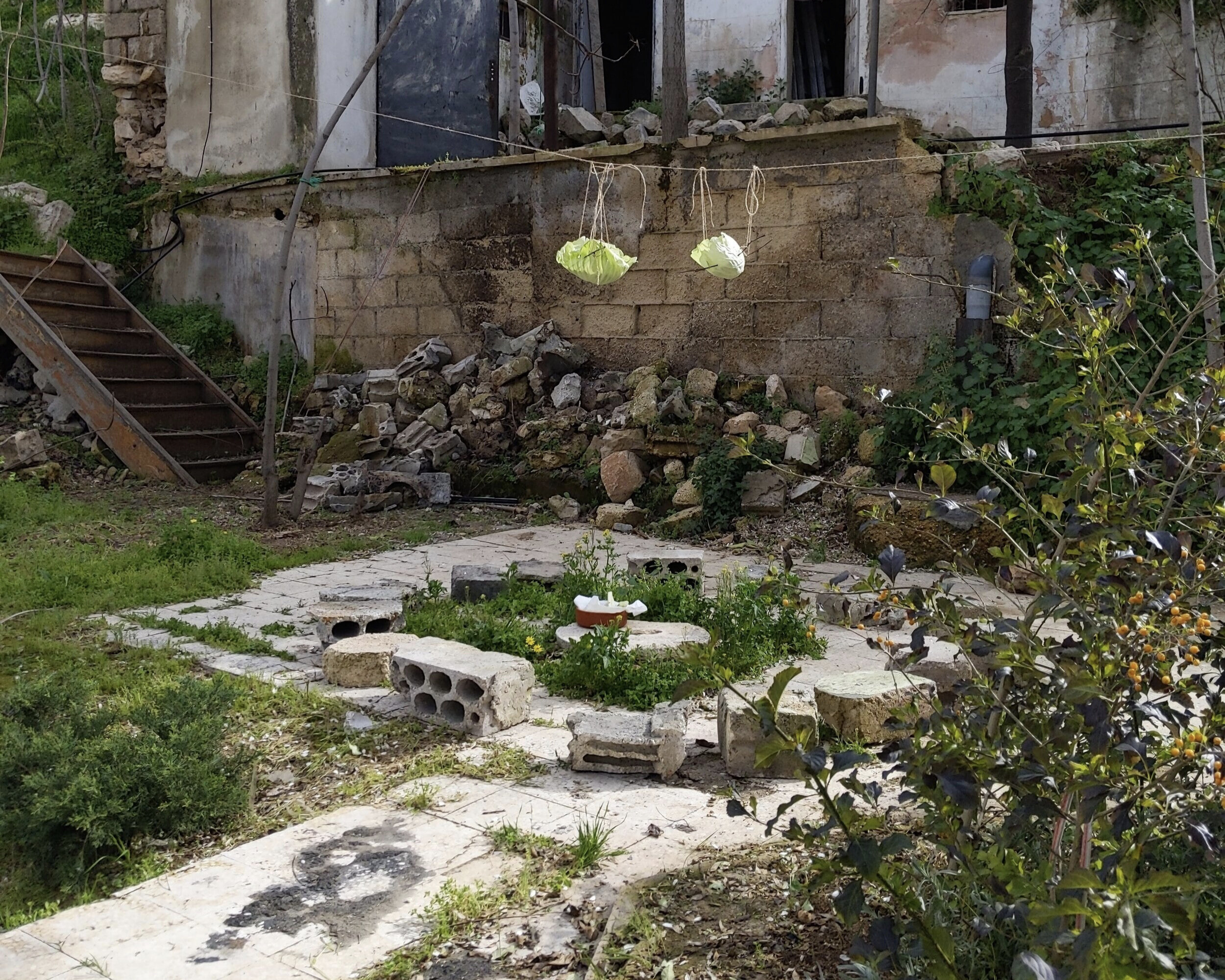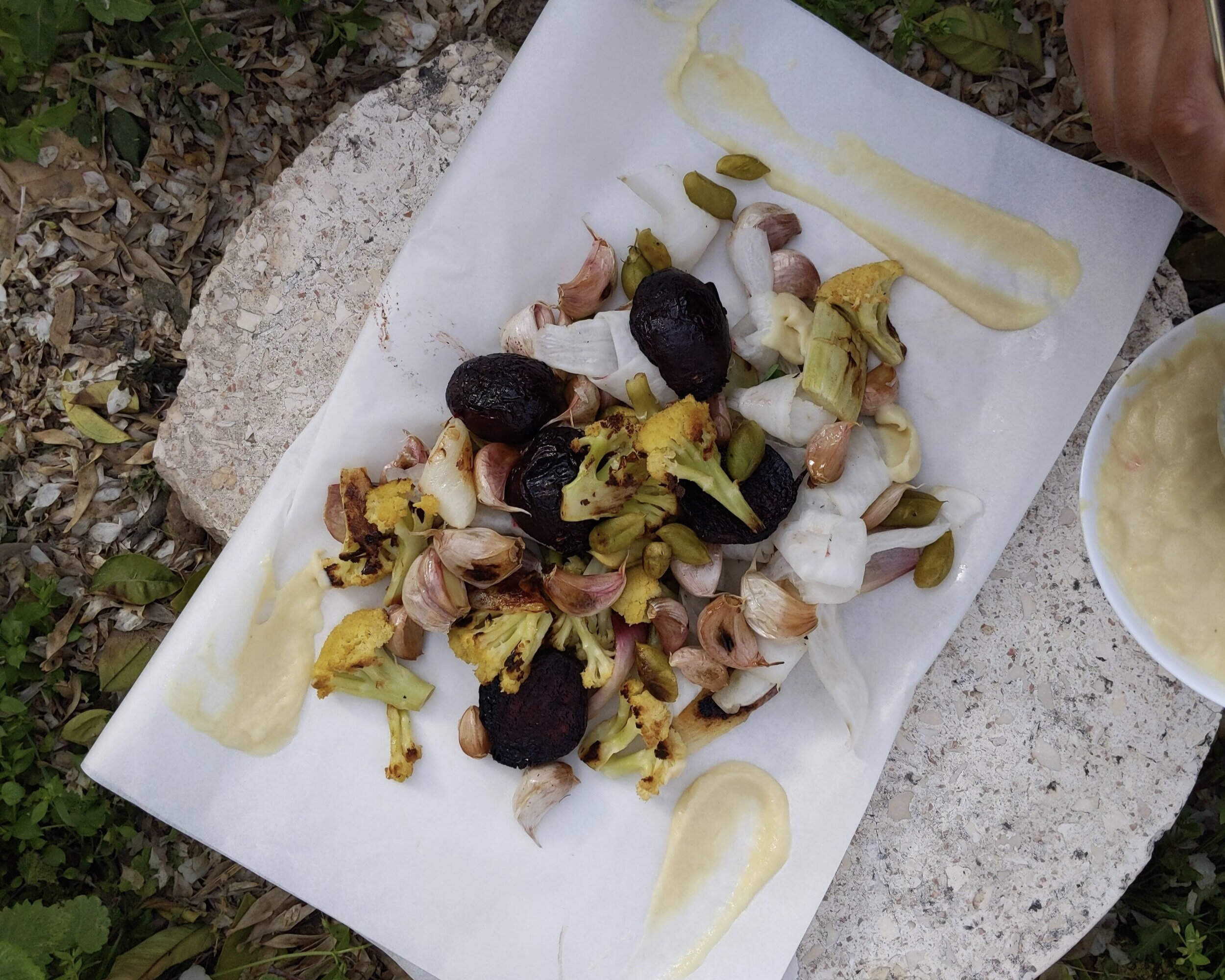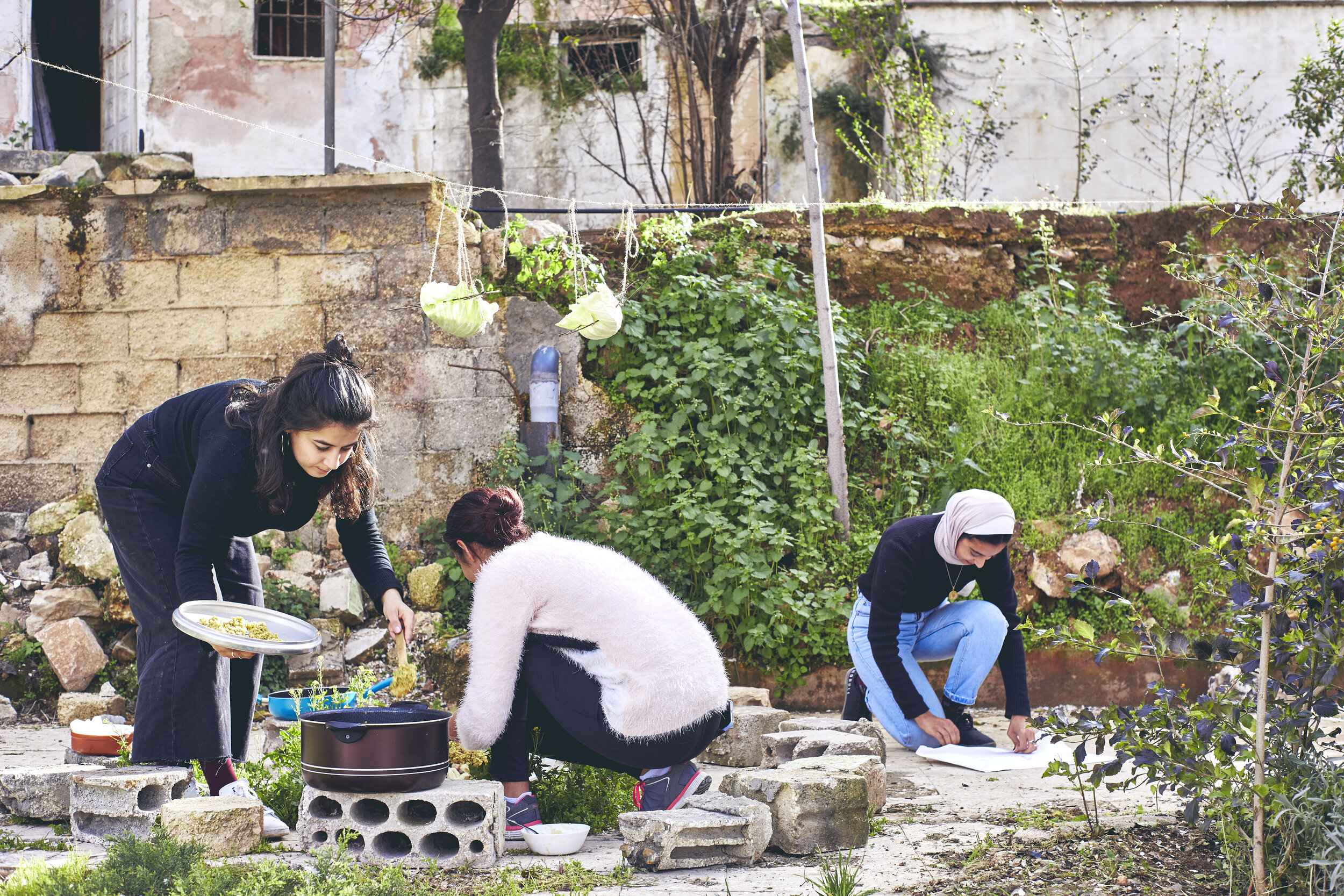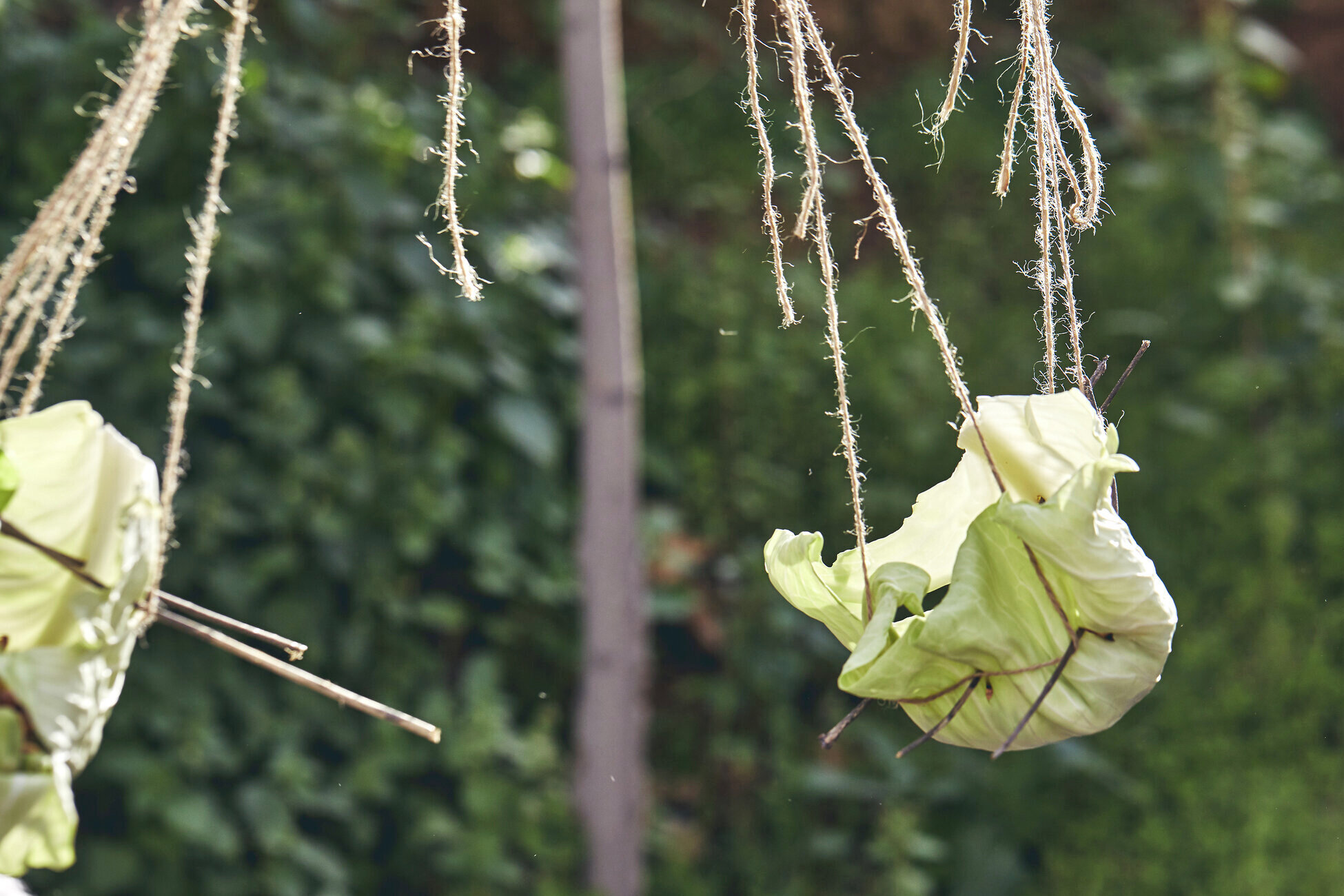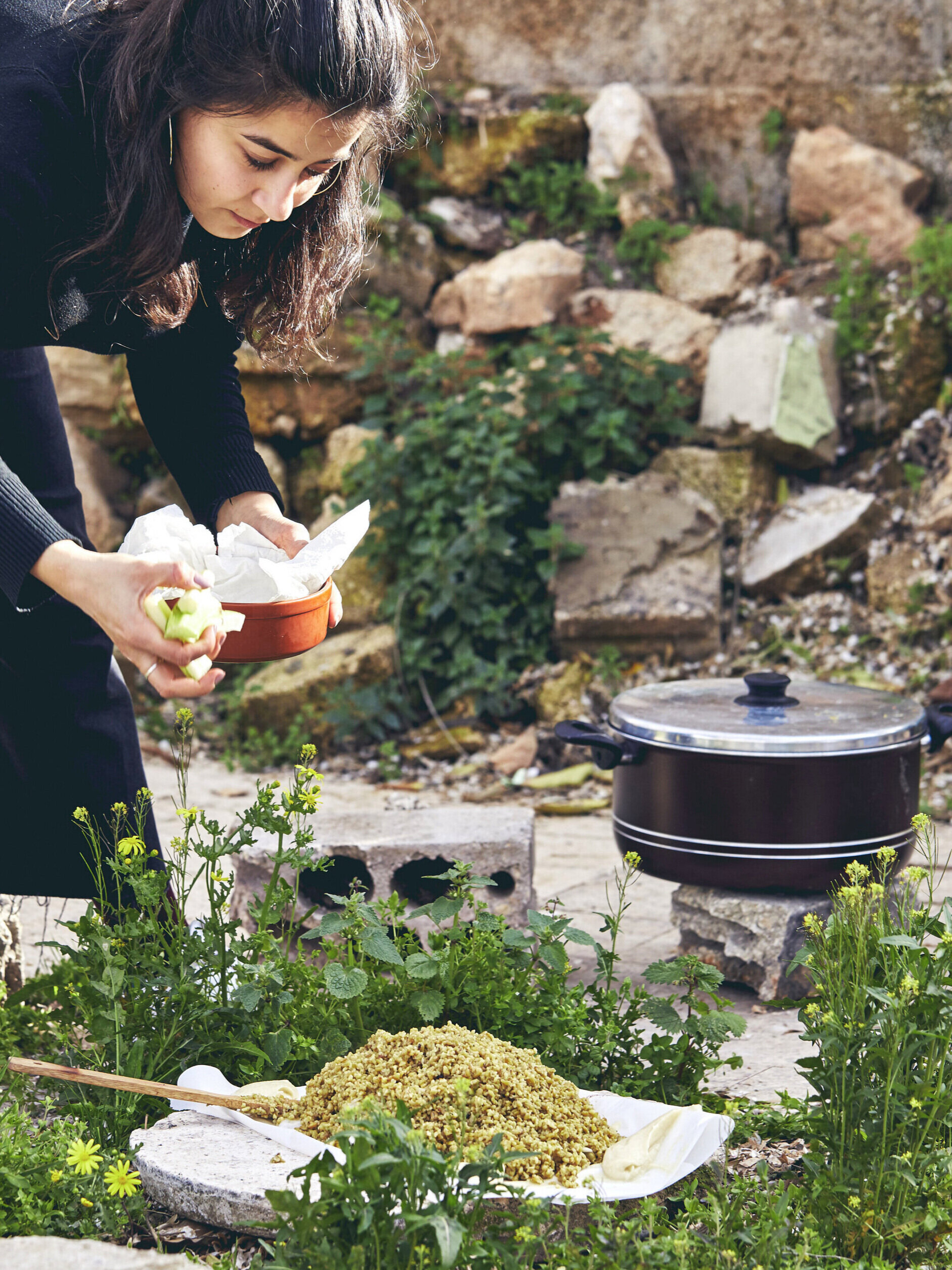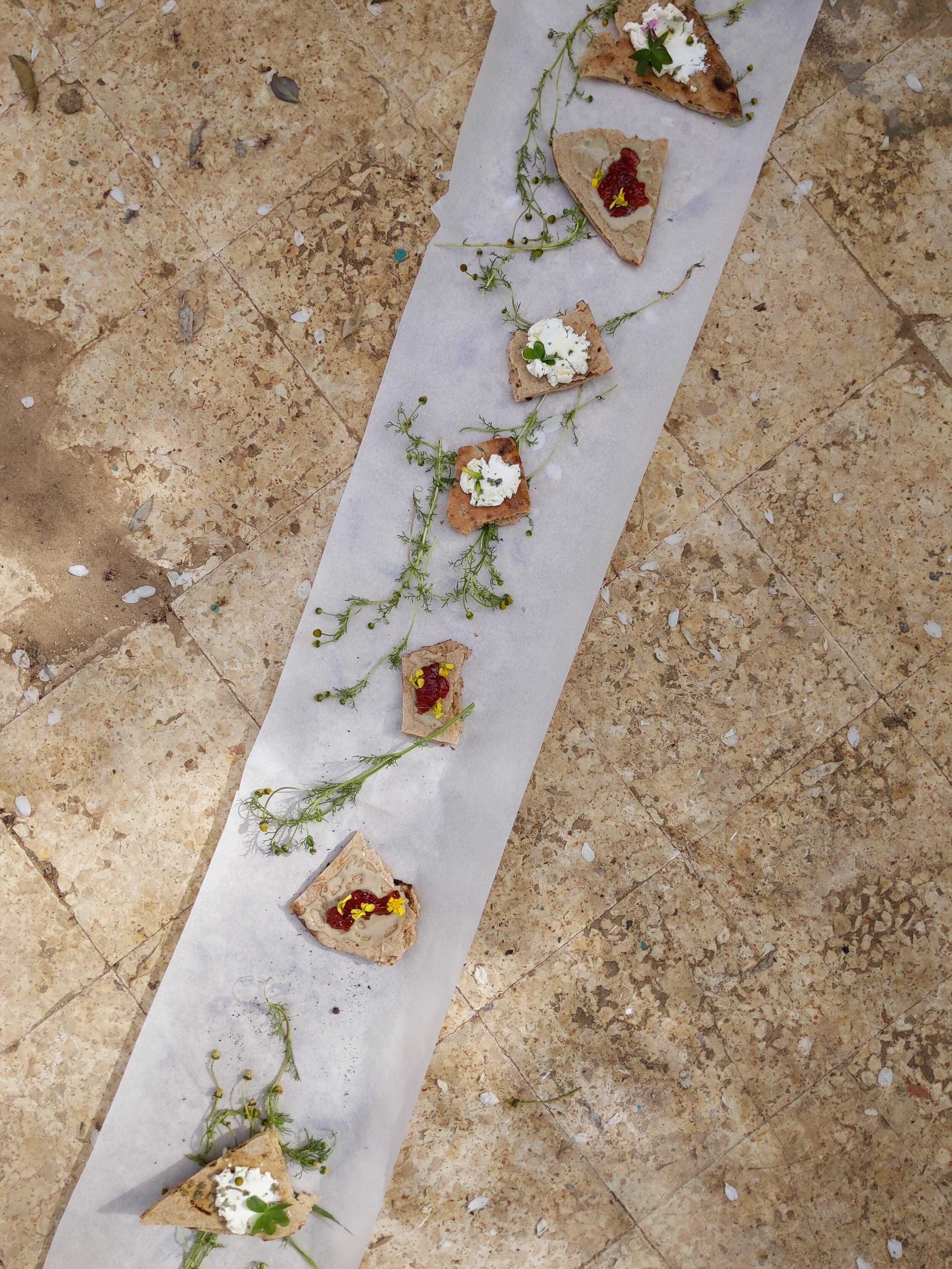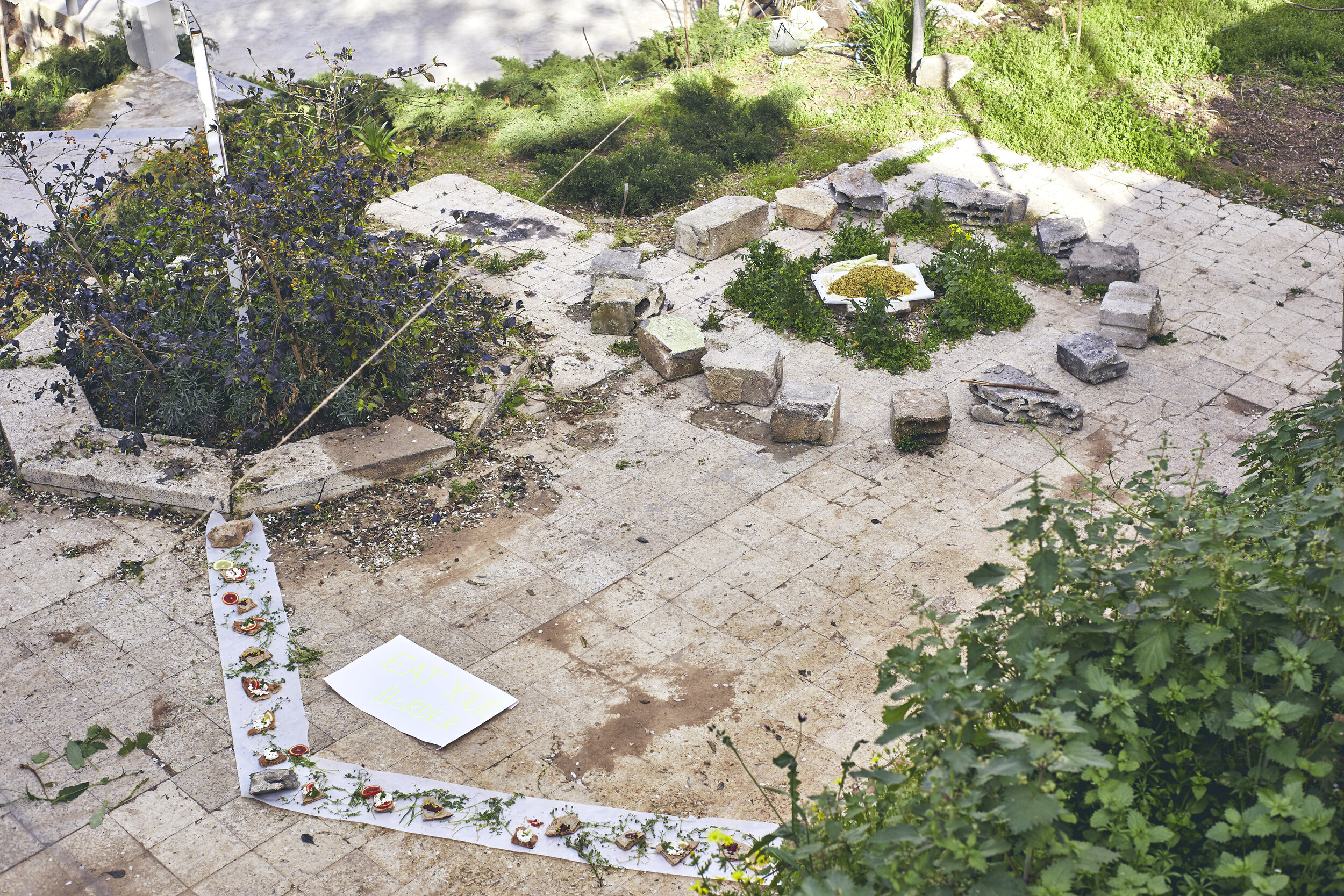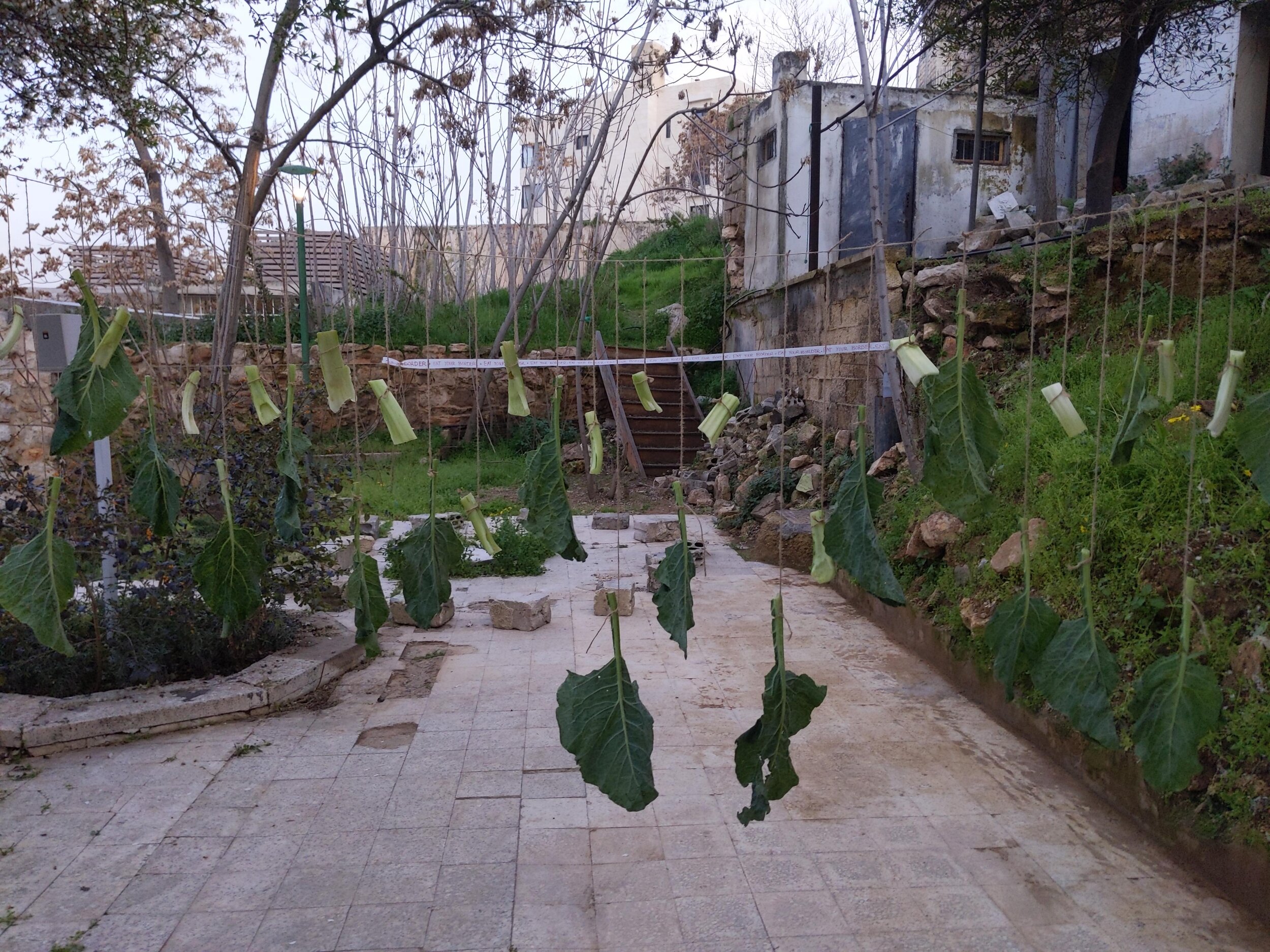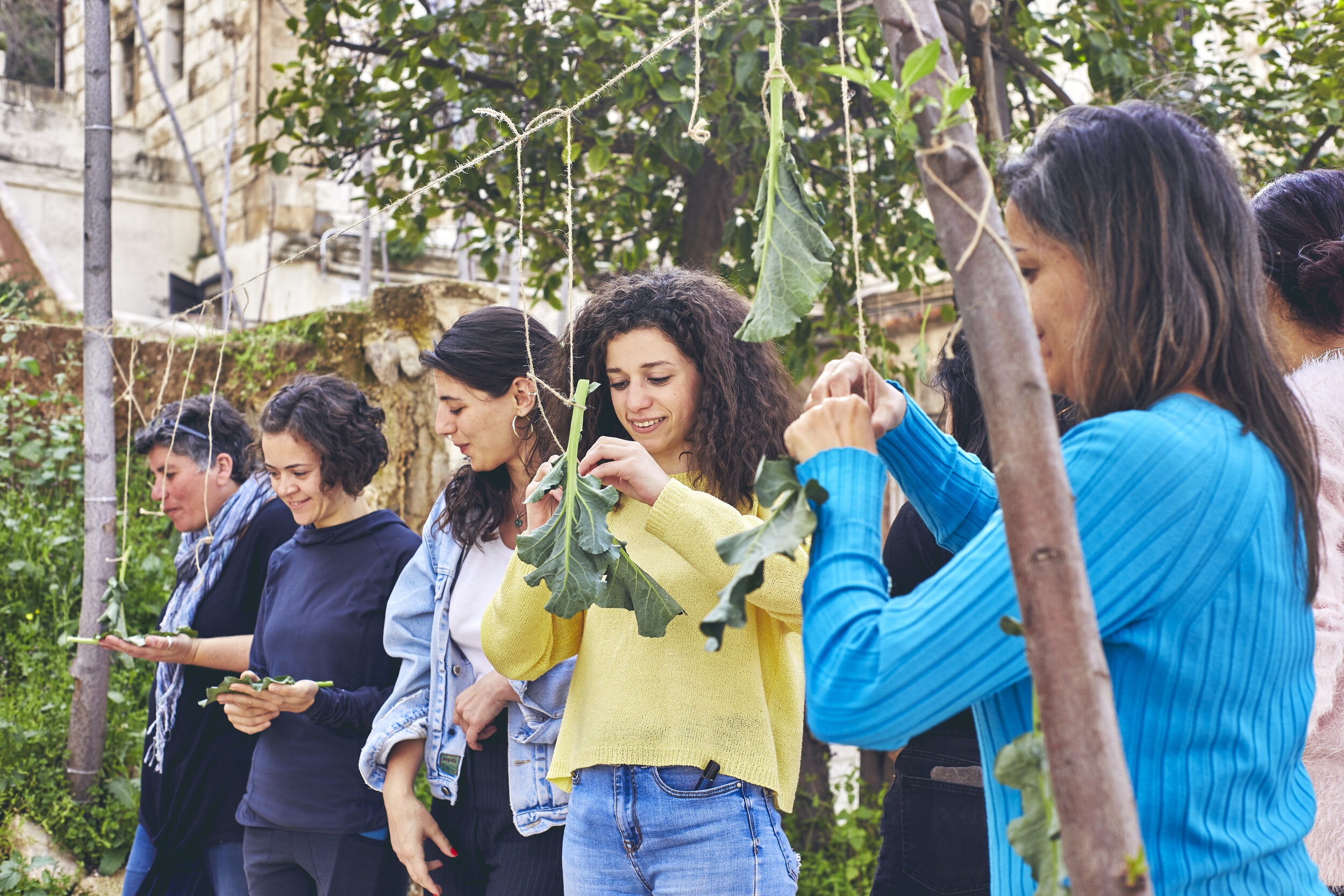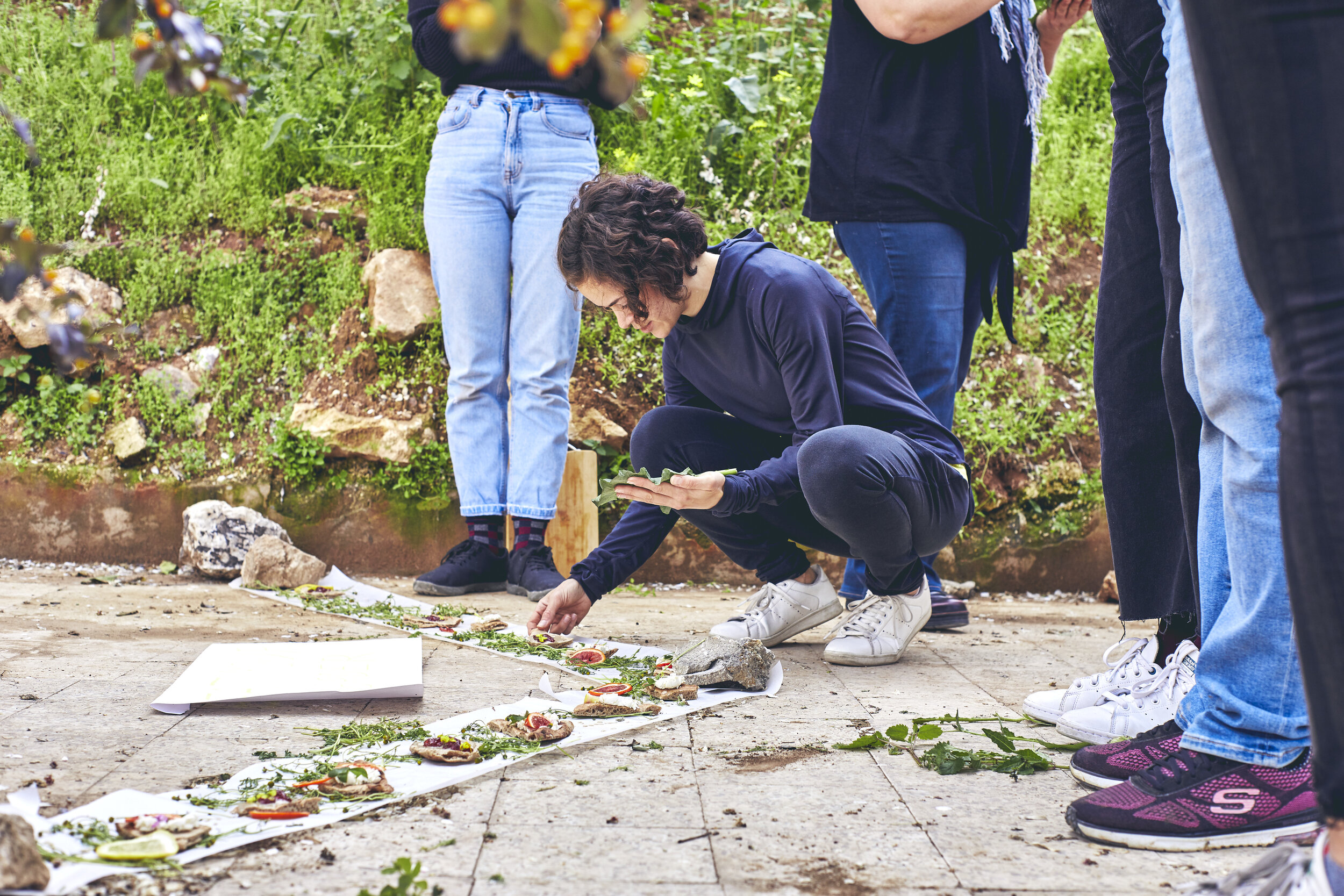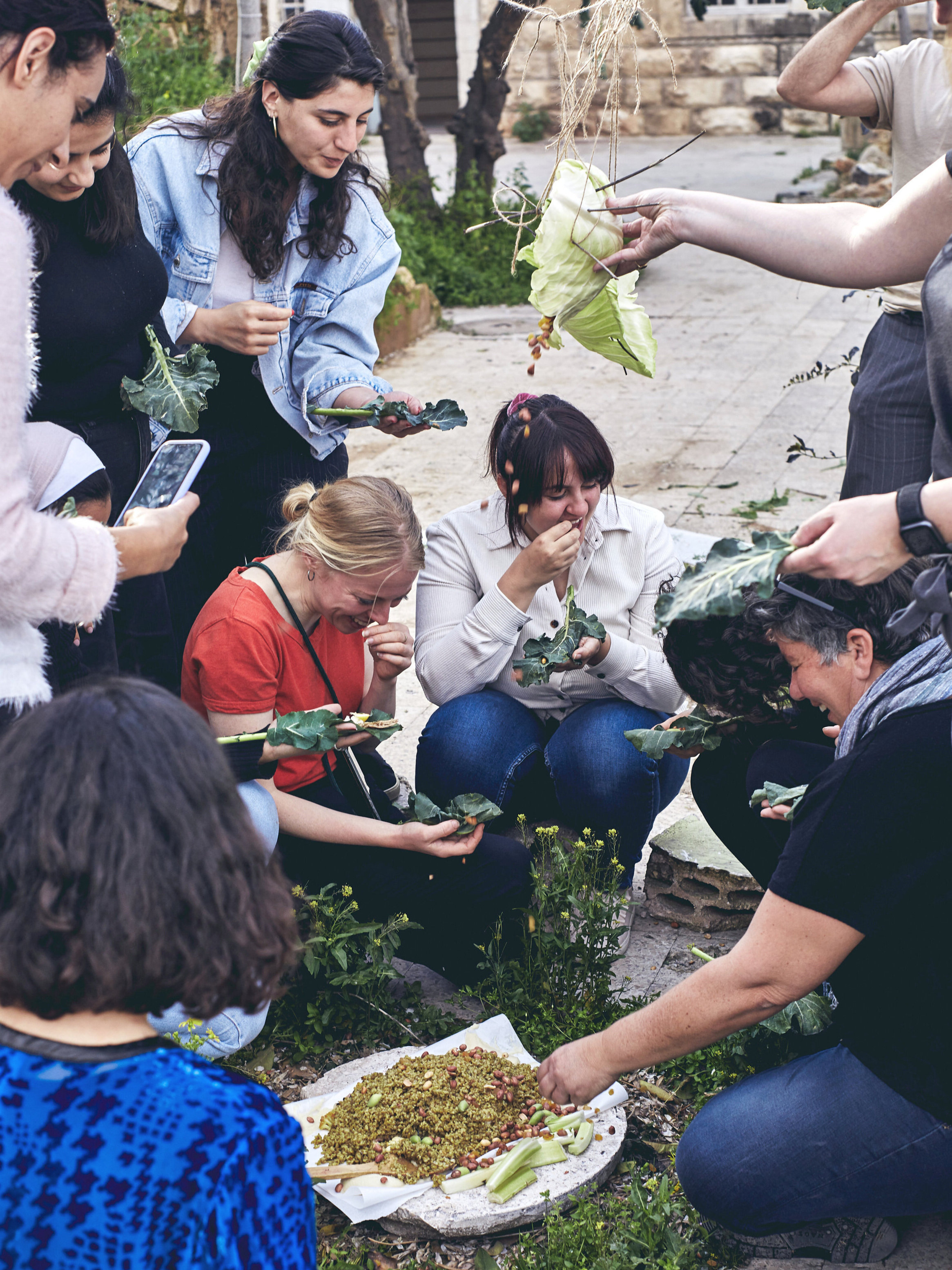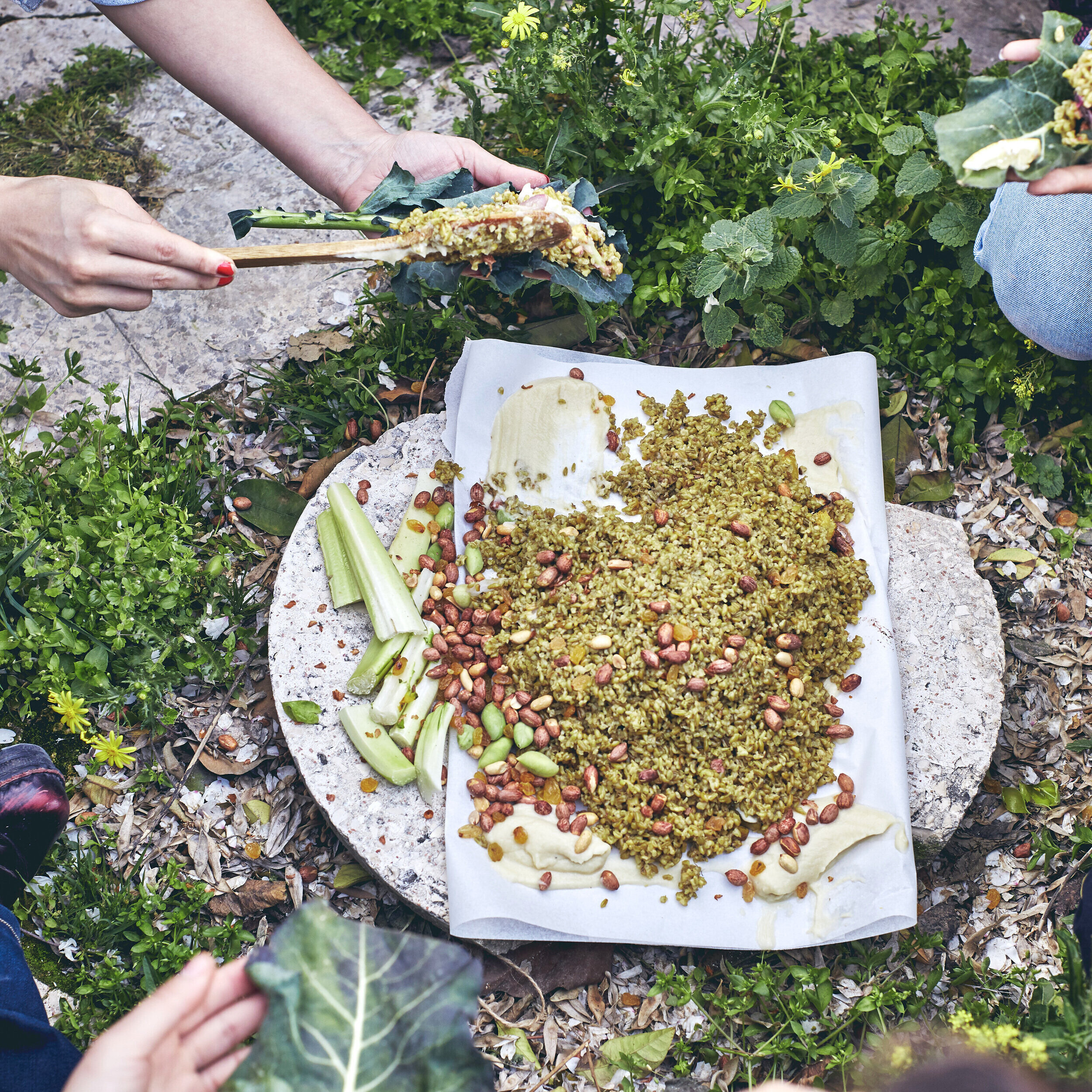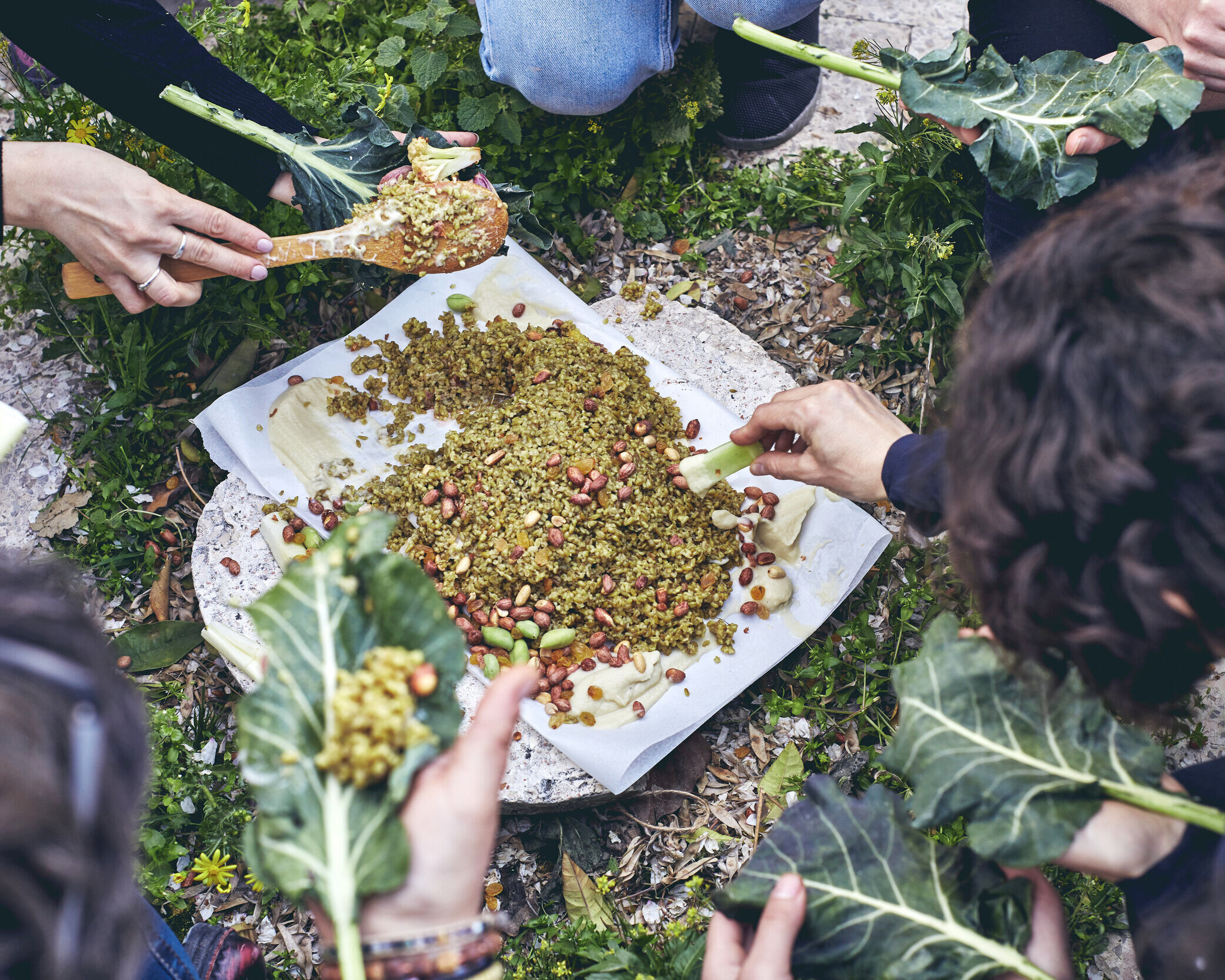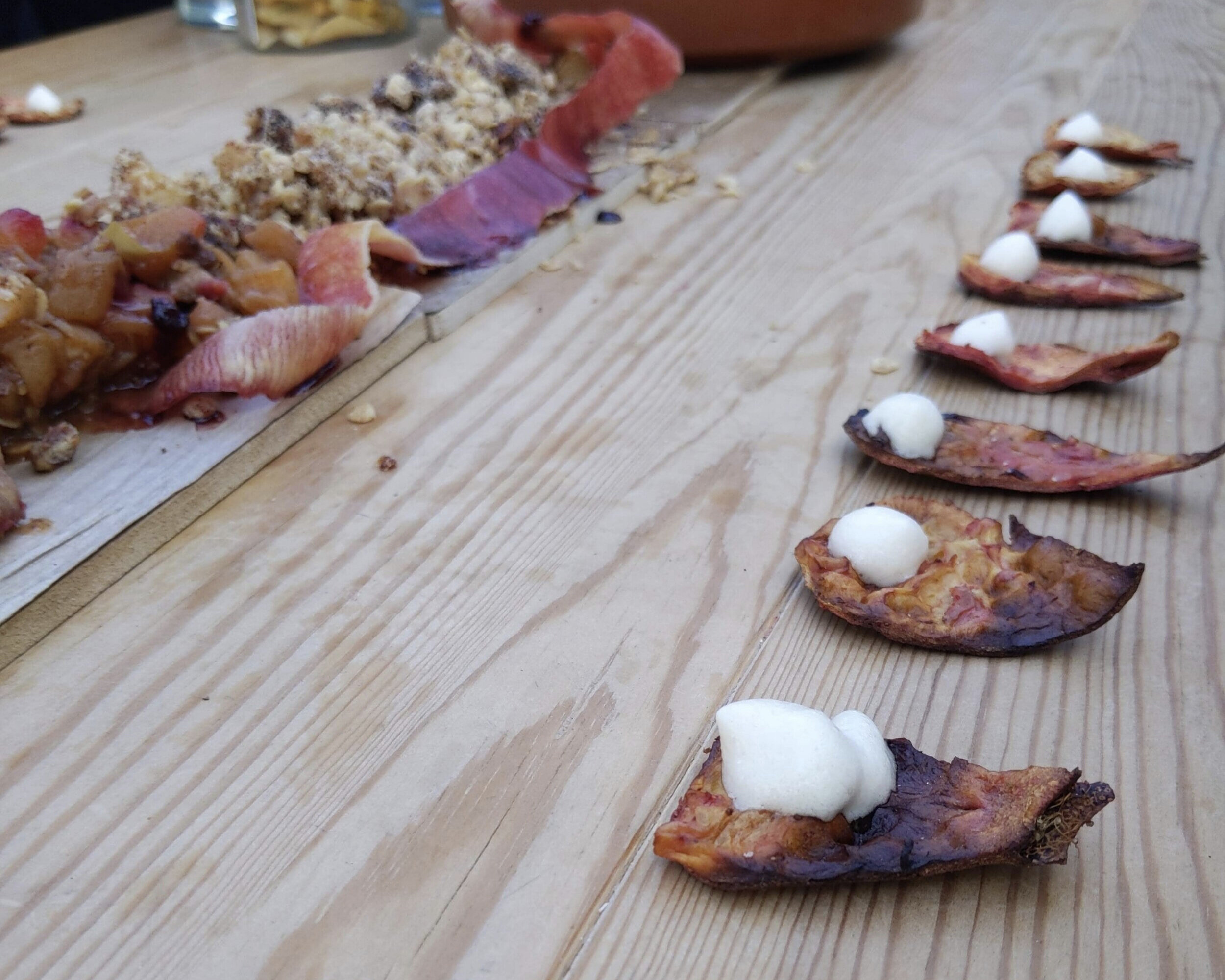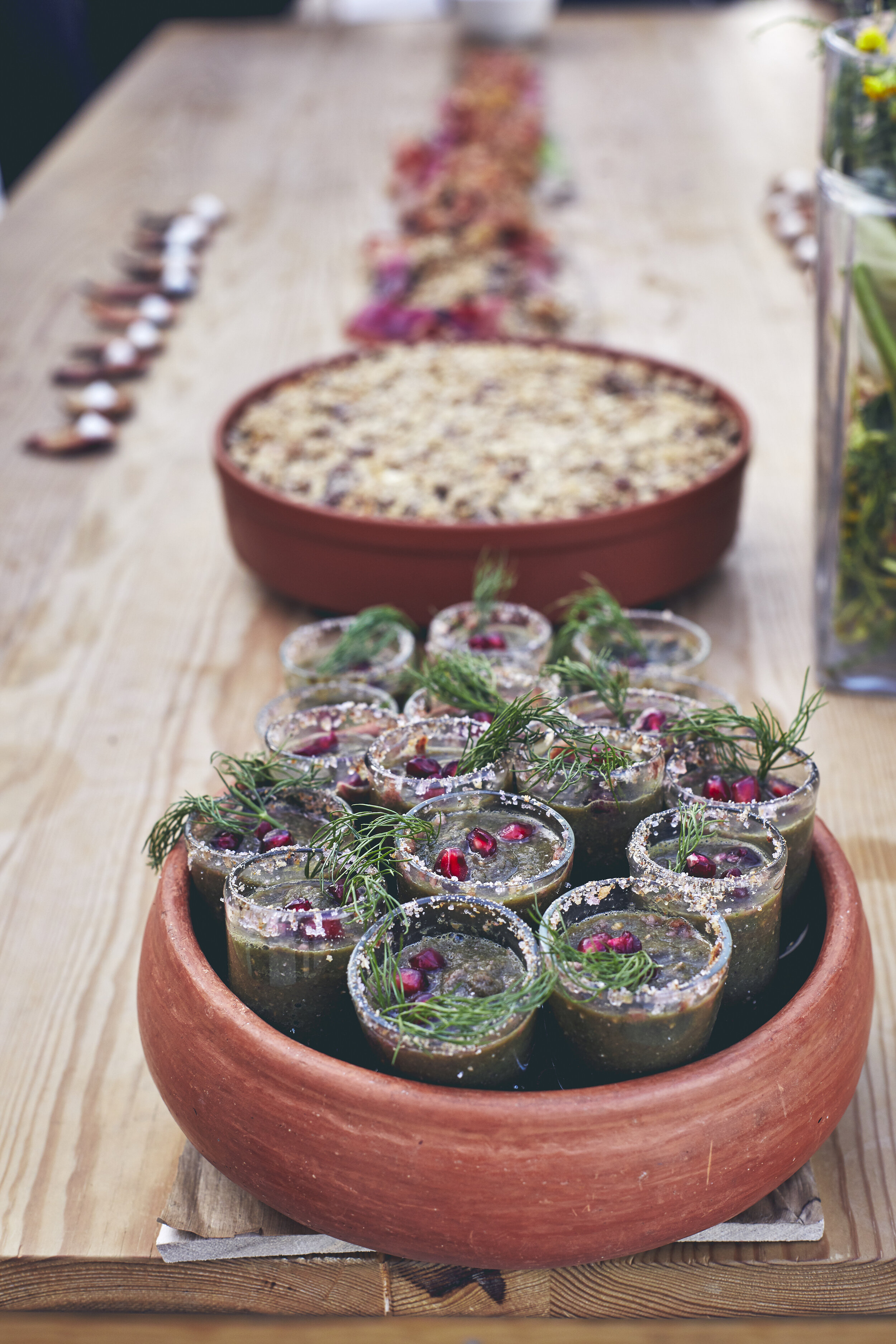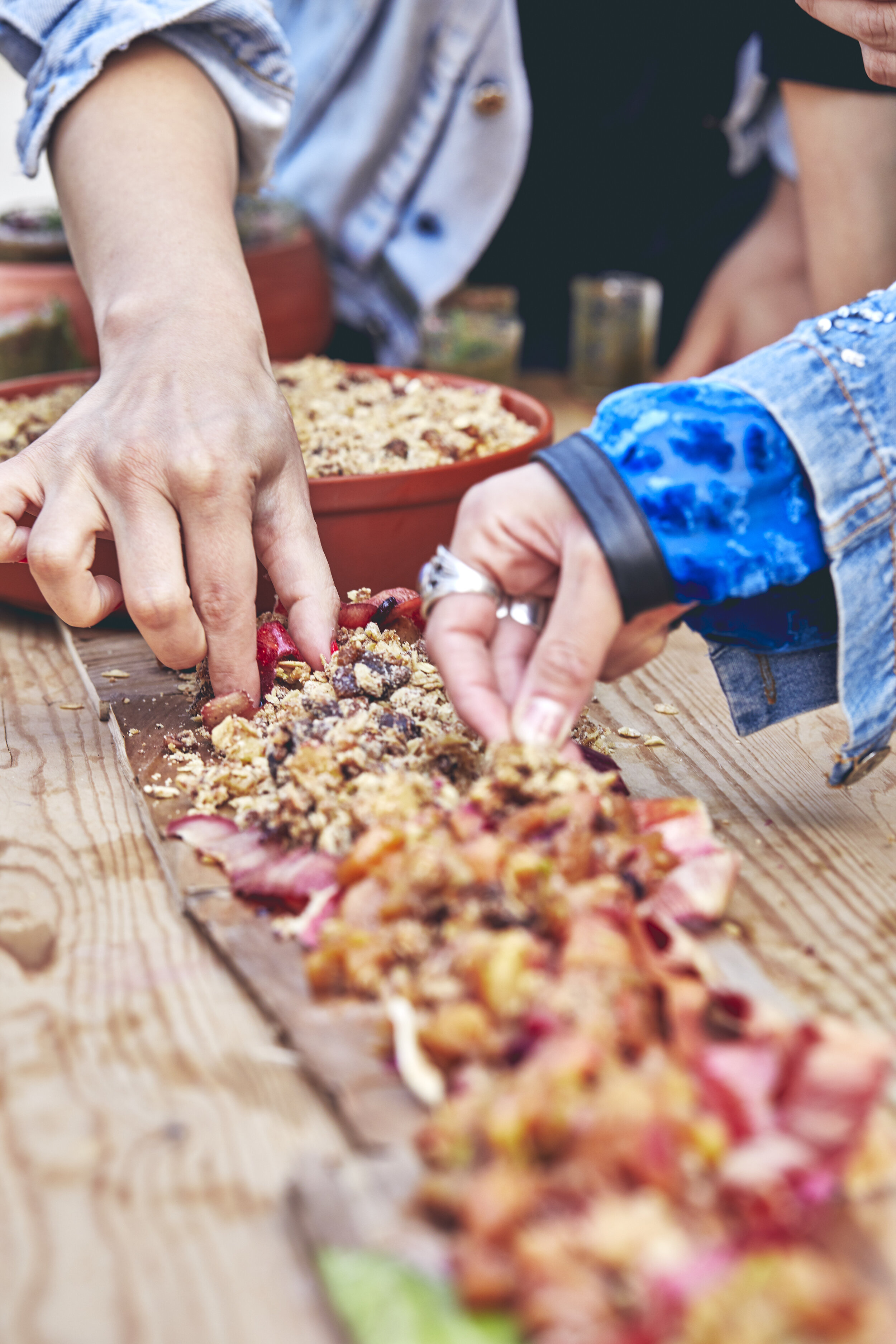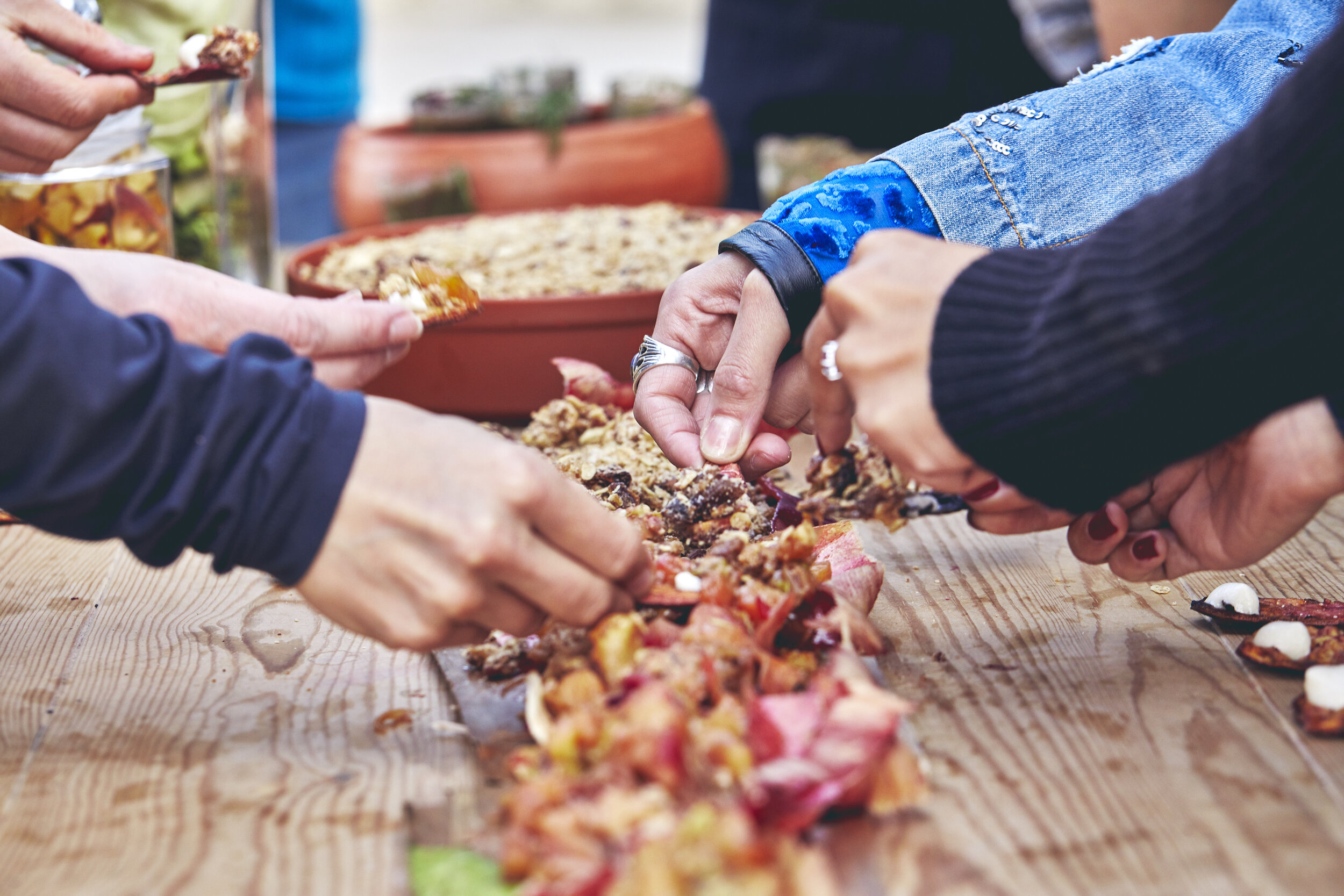Rethinking Eating Rituals
In partnership with the Goethe Institute, Inés Lauber led a week-long immersive workshop on the subject of “Rethinking Eating Rituals” in Amman, Jordan in March 2020. The workshop took a group of young professionals from different backgrounds on a journey exploring the many different aspects and possibilities of food and design. Participants learned how to use storytelling and art to approach challenges in the food system, especially on the topic of questioning food choices and etiquette.
Three days of the workshop were dedicated to field trips to multiple food production sites in Jordan. The group visited artisans, both traditional and modern, and reflected on the current reality of the food systems and traditions in Amman.
The workshop was structured around steps in the food cycle: Sourcing, Production, Packaging, Distribution, Consumption, and Waste. The workshop focused on the disconnect in the cycle between waste and sourcing, and participants were challenged to use food design to consider creative solutions to this break in the cycle. Participants were guided through a exploration journey; the workshop encouraged building a sense of presence and reflecting in each part of the journey about your own eating rituals and how they connect to traditional or learned behavior as well as to the infrastructure given or the social circumstances.
Throughout the week-long workshop, participants participated in story-telling and creative problem solving as a community. They collected stories and pieces of their week-long journey to bring to the group and create a final outcome at the end of the week. Together, the group decided on designing an experiential dinner using elements of food design, storytelling, and personal learnings from the workshop. The final dinner was open to the public and was an incredibly beautiful and immersive experience. The evening was a ceremonial performance showcasing the outcomes of the workshop through inviting interaction and engagement painting a picture of the current realities and challenges of today’s food system while advocating for more mindfulness and appreciation towards our daily nourishments.
The workshop ultimately created a community and safe space to explore sustainable solutions to issues in the food cycle. Participants especially focused on plastic-free food, mindful eating, respecting Mother Earth, and food sharing traditions. Participants walked away from the workshop with a great sense of curiosity to the endless possibilities which food design could offer in creating a better future.
Skills:
workshop concept
workshop lead
First Day: Welcome
Starting the first workshop day with a welcoming brunch feast on the terrace of MMAG, inviting everyone to share food, break bread with each other and meet, while exploring food with all the senses.
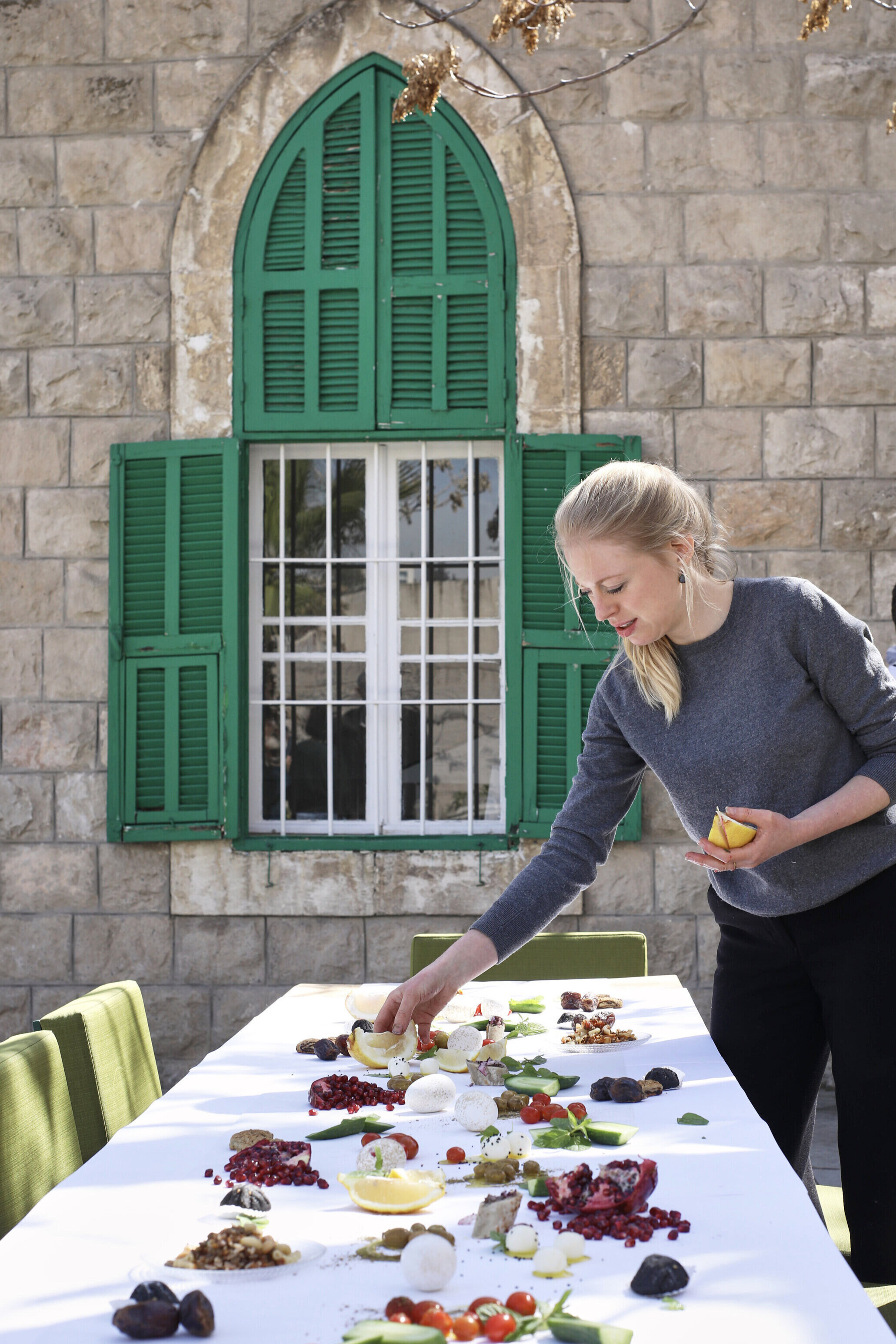
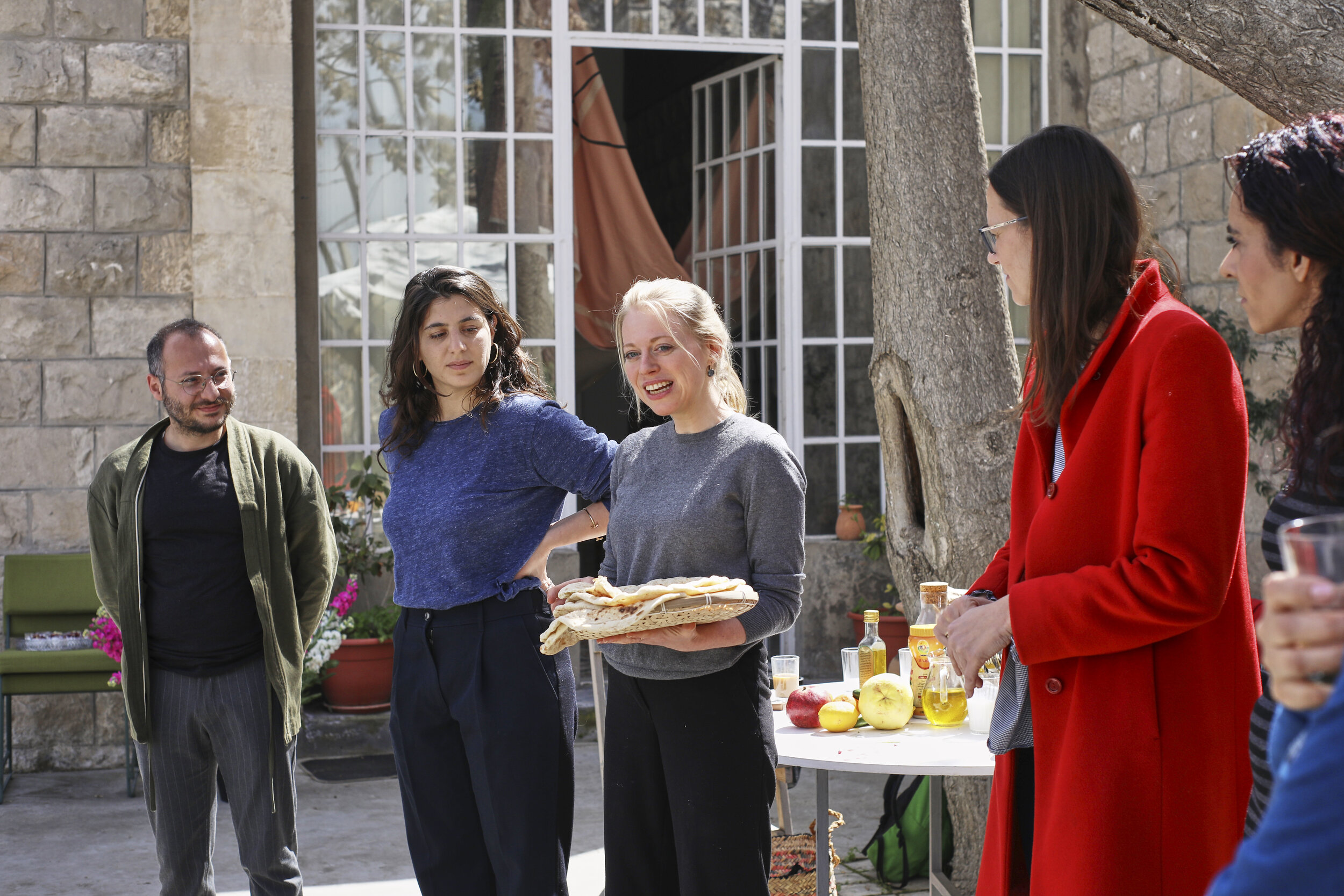
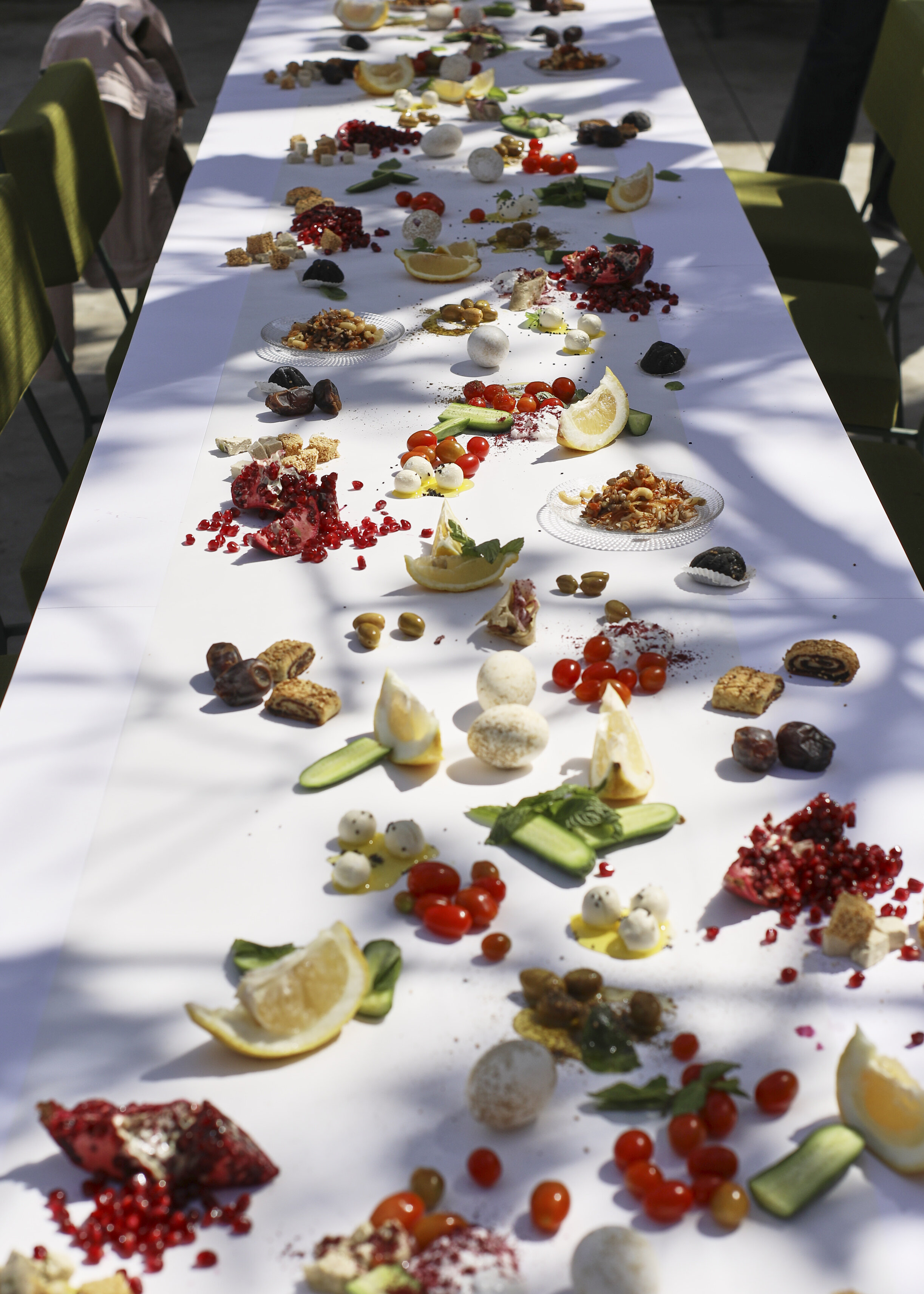
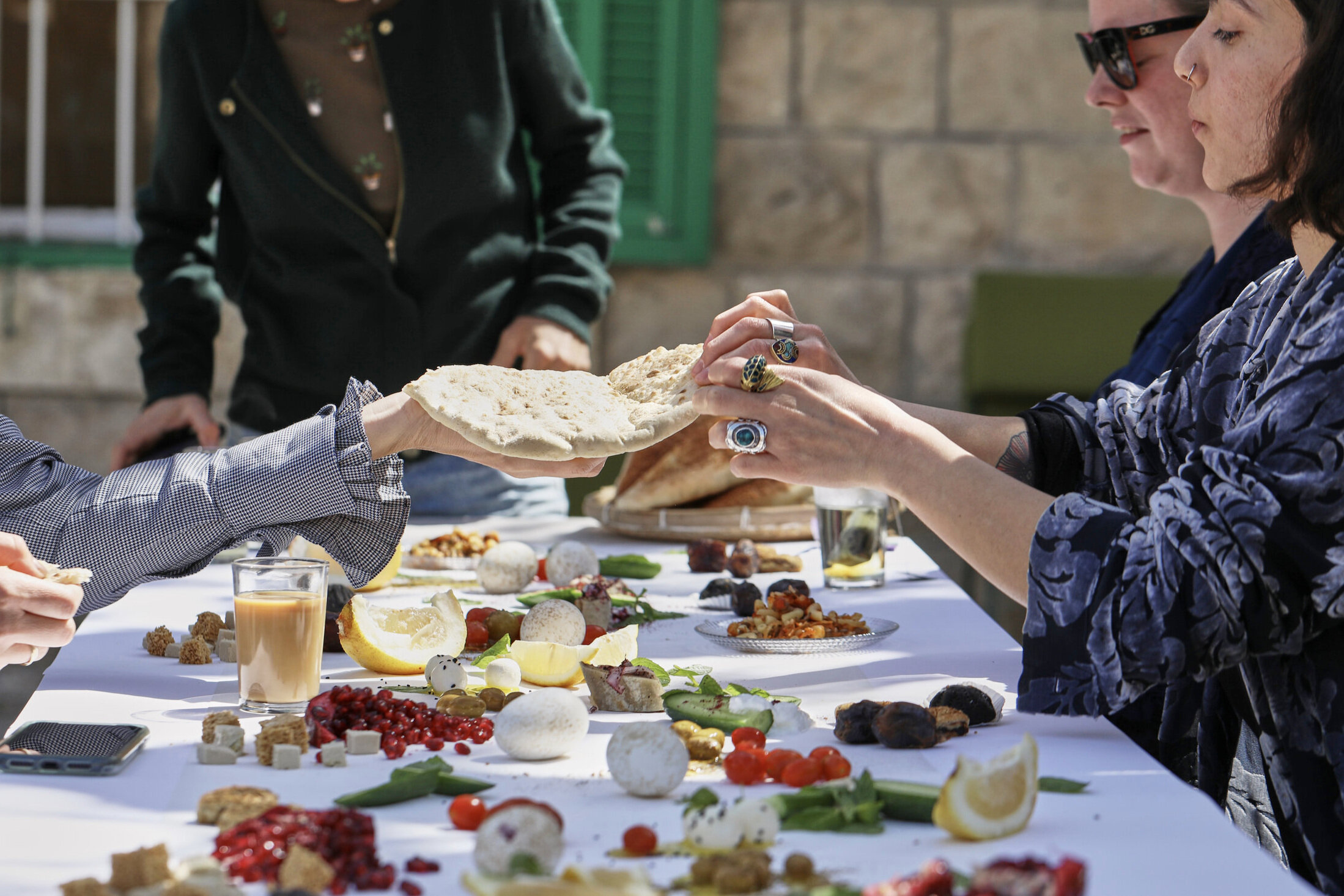
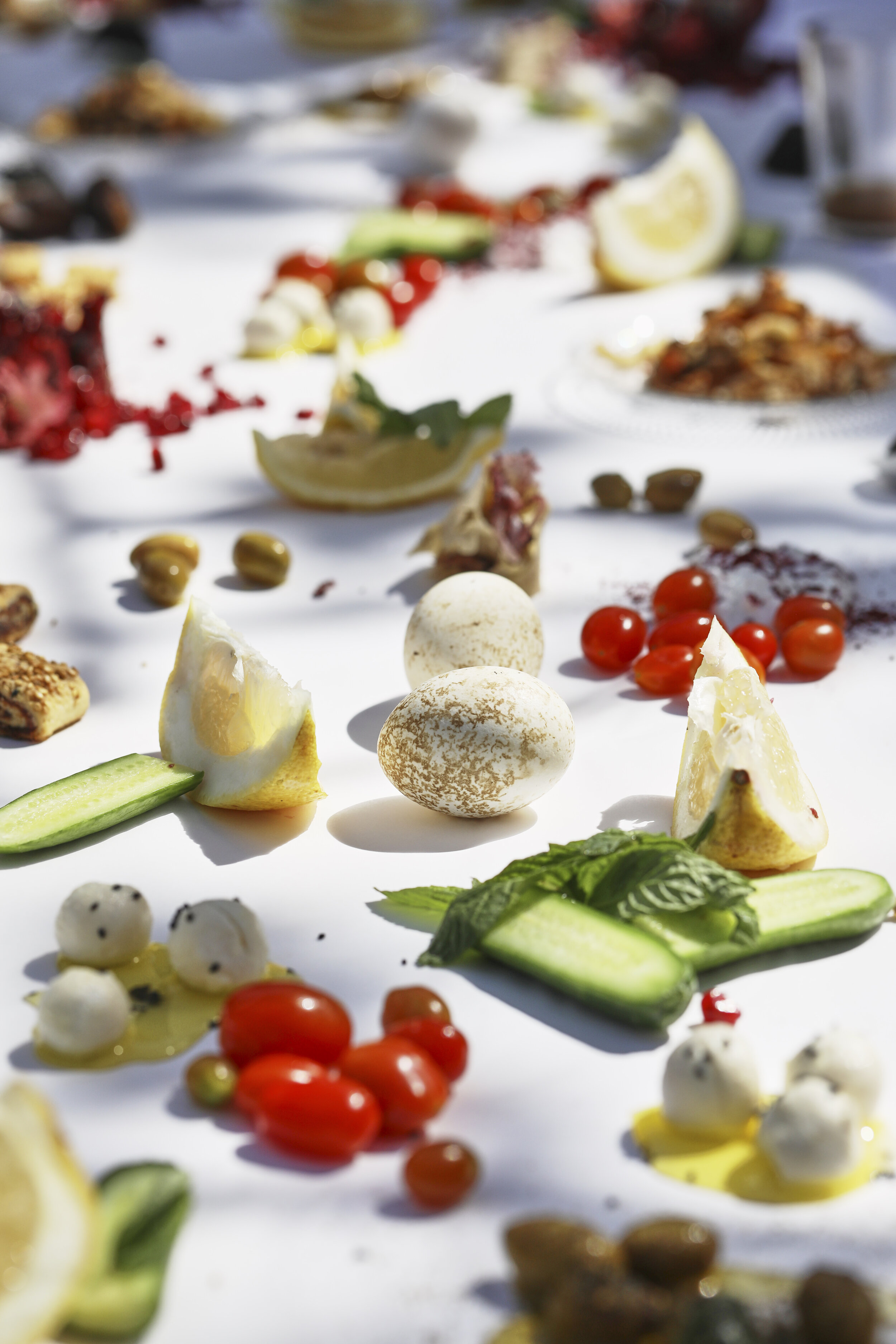
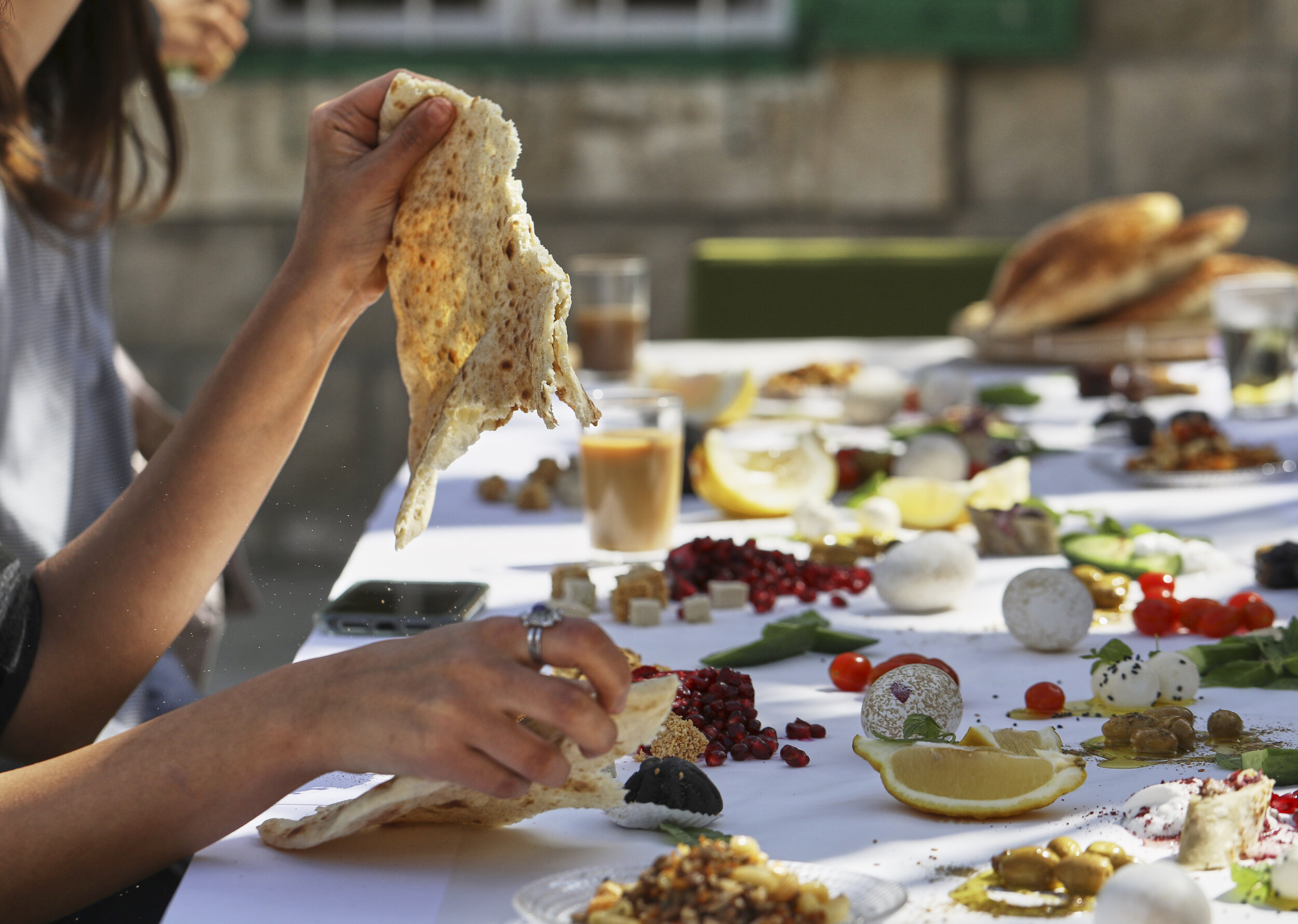
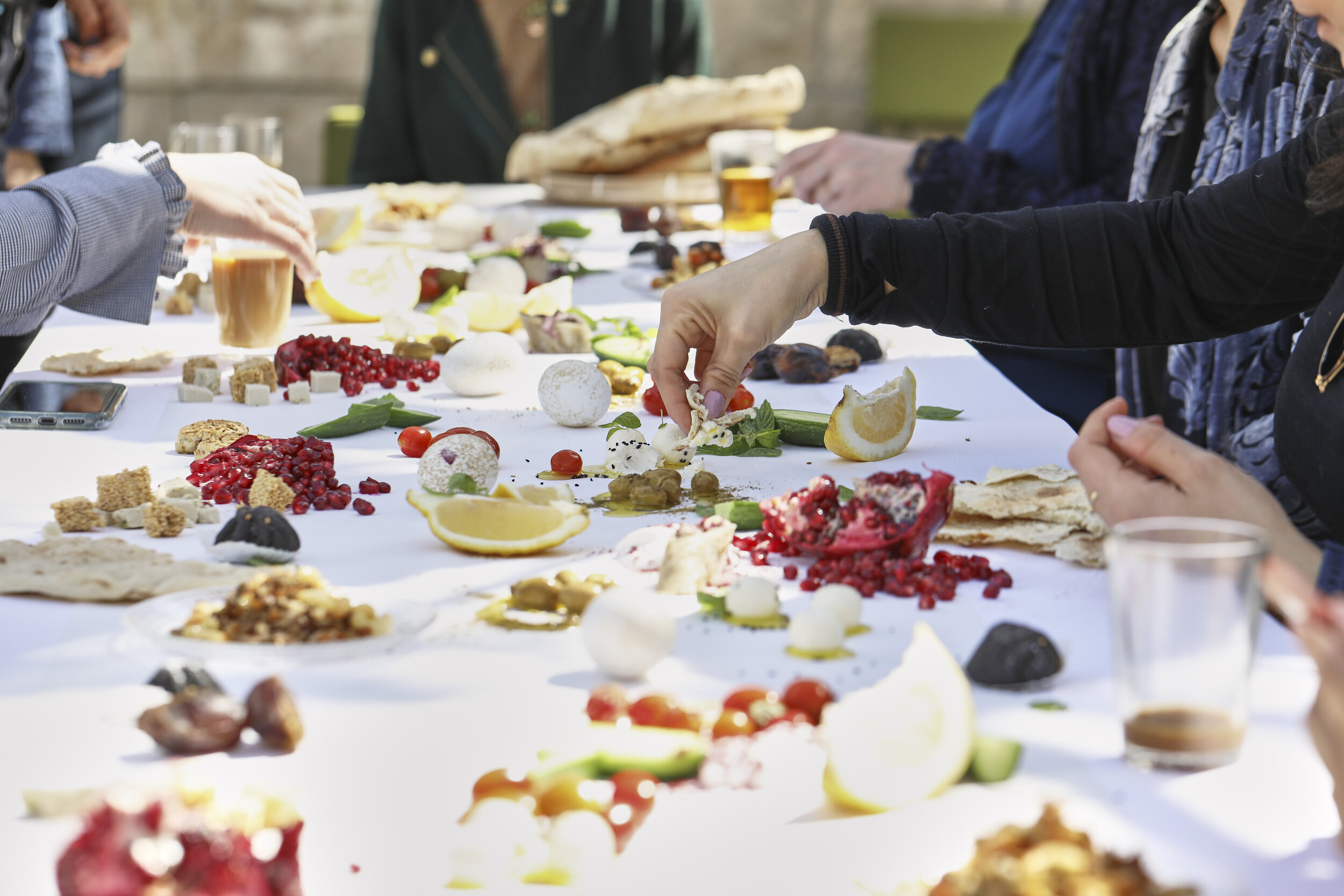
Three Days of Field Trips.
Visiting and learning from food producers: manufacturers versus industrial production, small scale and organic versus large scale and conventional. Talking to vendors, farmers, bakers, restaurateurs and food enthusiasts… tasting, smelling, listening and experiencing – collecting stories and understanding facts.
Storytelling.
What did we learn, discover and feel when visiting the multiple and very diverse food places? Participants presented their stories and discoveries to the group with the help of a personal mood board, while stepping into the next phase: the actual creation of a holistic food experience, which would make these stories and emotions tangible for others.
